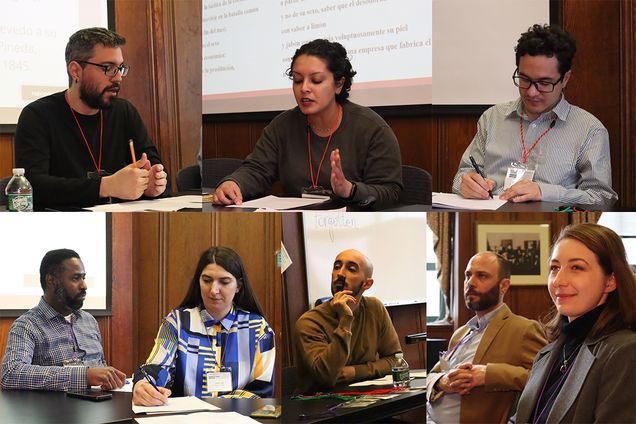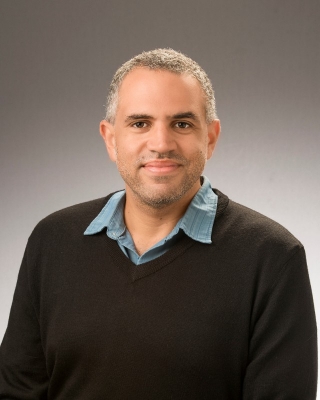What Is a Doctorate Degree?
A doctorate is usually the most advanced degree someone can get in an academic discipline, higher education experts say.
What Is a Doctorate?

Getty Images
It's unwise to apply to a doctoral program if you don't have a clear idea of how you might use a doctorate in your career.
In many academic disciplines, the most advanced degree one can earn is a doctorate. Doctorate degree-holders are typically regarded as authorities in their fields, and many note that a major reason for pursuing a doctorate is to increase professional credibility.
"If someone wants to be respected as an expert in their chosen field, and also wants to have a wider array of options in research, writing, publishing, teaching, administration, management, and/or private practice, a doctorate is most definitely worth considering," Don Martin, who has a Ph.D. in higher education administration , wrote in an email.
A doctoral degree is a graduate-level credential typically granted after multiple years of graduate school, with the time-to-degree varying depending on the type of doctoral program, experts say.
Earning a doctorate usually requires at least four years of effort and may entail eight years, depending on the complexity of a program's graduation requirements. It also typically requires a dissertation, a lengthy academic paper based on original research that must be vetted and approved by a panel of professors and later successfully defended before them for the doctorate to be granted.
Some jobs require a doctorate, such as certain college professor positions, says Eric Endlich, founder of Top College Consultants, an admissions consulting firm that helps neurodivergent students navigate undergraduate and graduate school admissions.
Endlich earned a Doctor of Philosophy degree, commonly known as a Ph.D., from Boston University in Massachusetts. He focused on psychology and notes that a doctoral degree is generally required to be a licensed psychologist.
"Since a Ph.D. is a research-focused degree, it can be advantageous to those seeking high-level research positions in scientific fields such as astrophysics or biotechnology," he says.

How Long it Takes to Get a Doctorate Degree
Martin, founder and CEO of Grad School Road Map, an organization that helps grad school applicants navigate the admissions process, says obtaining a doctorate is often a lengthy endeavor.
"Typically it can take between four and six years to complete any doctoral program," he says. "If comprehensive examinations and a dissertation are part of the graduation requirements, it may take a year or two longer. There is no standard amount of time – some students take seven to 10 years to finish."
Endlich says doctoral degree hopefuls should be aware that completing a dissertation may take a long time, especially if unexpected hurdles arise.
"My dissertation, for example, involved recruiting college students to complete questionnaires, and it took much longer than I anticipated to recruit enough subjects for my study," he says.
The standards for a dissertation, which include the proposal and research, are rigorous and usually involve a review and approval by a faculty committee, says Hala Madanat, vice president for research and innovation at San Diego State University in California.
"As part of dissertation requirements, some programs will require publication of the research in high-impact peer-reviewed journals," Madanat wrote in an email.
Types of Doctoral Degree Programs
According to professors and administrators of doctoral programs, there are two types of doctorates.
Doctor of Philosophy
A doctor of philosophy degree is designed to prepare people for research careers at a university or in industry, and teach students how to discover new knowledge within their academic discipline. Ph.D. degrees are offered in a wide range of academic subjects, including highly technical fields like biology , physics, math and engineering; social sciences like sociology and economics; and humanities disciplines like philosophy.
A Ph.D. is the most common degree type among tenure-track college and university faculty, who are typically expected to have a doctorate. But academia is not the only path for someone who pursues a Ph.D. It's common for individuals with biology doctorates to work as researchers in the pharmaceutical industry, and many government expert positions also require a Ph.D.
Professional or clinical doctorates
These are designed to give people the practical skills necessary to be influential leaders within a specific industry or employment setting, such as business, psychology , education or nursing . Examples of professional doctoral degrees include a Doctor of Business Administration degree, typically known as a DBA; a Doctor of Education degree, or Ed.D.; and a Doctor of Nursing Practice degree, or DNP.
A law degree, known as a juris doctor or J.D., as well as a Doctor of Medicine degree, or M.D., are also considered professional doctorates.
How to Get a Doctorate
Getting a doctorate is challenging. It ordinarily requires a series of rigorous classes in a field of study and then passage of a qualification exam in order to begin work on a dissertation, which is the final project.
Dissertations are difficult to write, says David Harpool, vice president of graduate and online programs at Newberry College in South Carolina. Some research indicates that only about half of doctoral students go on to finish their degree, and a main reason is that many never finish and successfully defend their dissertation
"Many of them are in programs that permit them to earn a master’s on the way to a doctorate," Harpool, who earned a Ph.D. from Saint Louis University in Missouri and a J.D. from the University of Missouri , wrote in an email. "The transition from mastering a discipline to creating new knowledge (or at least applying new knowledge in a different way), is difficult, even for outstanding students."
Learn about how M.D.-Ph.D. programs
There is a often a "huge shift in culture" at doctoral programs compared to undergraduate or master's level programs, says Angela Warfield, who earned a Ph.D. in English from the University of Iowa.
Doctoral professors and students have more of a collaborative relationship where they function as colleagues, she says. And there's pressure on each student to produce "significant and original research."
Many full-time doctoral students work for the school as researchers or teaching assistants throughout their program, so time management is crucial to avoid burnout. However, the dissertation "is by far the biggest battle," she says. The goal is to avoid an "ABD," she says, meaning "all but dissertation."
"In my writing group, we had two motivational slogans: 'ABD is not a degree,' and 'a good dissertation is a done dissertation,'" Warfield, now the principal consultant and founder of admissions consulting firm Compass Academics, wrote in an email.
How Are Doctorate Admissions Decisions Made?
Admissions standards for doctoral programs vary depending on the type of doctorate, experts say.
The quality of a candidate's research is a distinguishing factor in admissions decisions, Madanat says. Meanwhile, leaders of clinical and professional doctorate programs say that the quality of a prospective student's work experience matters most.
Doctoral programs typically expect students to have a strong undergraduate transcript , excellent letters of recommendation and, in some cases, high scores on the Graduate Record Examination , or GRE, Endlich says.
"The size of the programs may be relatively small, and universities need to be sure that applicants will be able to handle the demands of their programs," he says.
Because professional doctorates often require students to come up with effective solutions to systemic problems, eligibility for these doctorates is often restricted to applicants with extensive first-hand work experience with these problems, according to recipients of professional doctorates.
In contrast, it's common for Ph.D. students to begin their programs immediately after receiving an undergraduate degree. The admissions criteria at Ph.D. programs emphasize undergraduate grades, standardized test scores and research projects , and these programs don't necessarily require work experience.
Admissions decisions may also depend on available funding, says Madanat, who works with doctoral students to provide funding, workshops and faculty support to help their research.
Who Is a Good Fit for a Doctoral Program?
Doctoral degree hopefuls "should be interested in making a deep impact on their field, open-minded, eager to learn, curious, adaptable and self-motivated," Madanat says. "Doctoral programs are best suited for those whose goals are to transform and change the fields they are studying and want to make a difference in the way the world is."
Someone who loves to study a subject in great depth, can work alone or in teams, is highly motivated and wants to develop research skills may be a good candidate for a doctoral program, Endlich says.
Because of the tremendous effort and time investment involved in earning a doctorate, experts say it's foolish to apply to a doctoral program if it's unclear how you might use a doctorate in your career.
"The students are being trained with depth of knowledge in the discipline to prepare them for critical thinking beyond the current state of the field," Madanat says. "Students should consider the reasons that they are pursuing a doctoral degree and whether or not it aligns with their future professional goals, their family circumstances and finances."
Rachel D. Miller, a licensed marriage and family therapist who completed a Ph.D. degree in couples and family therapy at Adler University in Illinois in 2023, says pursuing a doctorate required her to make significant personal sacrifices because she had to take on large student loans and she needed to devote a lot of time and energy to her program. Miller says balancing work, home life and health issues with the demands of a Ph.D. program was difficult.
For some students, the financial component may be hard to overlook, Warfield notes.
"Student debt is no joke, and students pursuing graduate work are likely only compounding undergraduate debt," she says. "They need to really consider the payoff potential of the time and money sacrifice."
To offset costs, some programs are fully funded, waiving tuition and fees and providing an annual stipend. Some offer health insurance and other benefits. Students can also earn money by teaching at the university or through fellowships, but those adding more to their plate should possess strong time management skills, experts say.
"Graduate school, and higher education in general, can be brutal on your physical and mental health," Miller wrote in an email.
But Miller says the time and effort invested in her doctoral program paid off by allowing her to conduct meaningful research into the best way to provide therapy to children affected by high-conflict divorce and domestic violence. She now owns a therapy practice in Chicago.
Miller urges prospective doctoral students to reflect on whether getting a doctorate is necessary for them to achieve their dream job. "Really know yourself. Know your purpose for pursuing it, because that's what's going to help carry you through."
Searching for a grad school? Access our complete rankings of Best Graduate Schools.
30 Fully Funded Ph.D. Programs

Tags: graduate schools , education , students , academics
You May Also Like
Find a strong human rights law program.
Anayat Durrani April 18, 2024

Environmental Health in Medical School
Zach Grimmett April 16, 2024

How to Choose a Law Career Path
Gabriel Kuris April 15, 2024

Questions Women MBA Hopefuls Should Ask
Haley Bartel April 12, 2024

Law Schools With the Highest LSATs
Ilana Kowarski and Cole Claybourn April 11, 2024

MBA Programs That Lead to Good Jobs
Ilana Kowarski and Cole Claybourn April 10, 2024

B-Schools With Racial Diversity
Sarah Wood April 10, 2024

Law Schools That Are Hardest to Get Into
Sarah Wood April 9, 2024

Ask Law School Admissions Officers This
Gabriel Kuris April 9, 2024

Grad School Housing Options
Anayat Durrani April 9, 2024

Study a PhD: A Guide to PhD Degrees
Looking to undertake PhD studies? This guide will tell you everything you need to know about PhD studies.

Looking to undertake PhD studies? Is getting a PhD even worth it? This guide will tell you everything you need to know about getting a PhD.
In this guide, we'll cover:
- What is a PhD?
- What Types of PhD Are There?
- How Long Does It Take To Get A PhD?
What Are The Requirements To Study A PhD?
What are the benefits of getting a phd, what is the average salary of a phd graduate.
- How Much Does Earning a PhD Cost?
Can I Do a PhD Online?
Would you like to study a phd abroad.
Click here to start a search for your ideal PhD program!
What is a PhD/Doctorate degree?
A Doctor of Philosophy, more commonly known as a PhD, is the highest level of degree you can achieve in one field of study. It’s awarded by universities around the world for significant contributions to knowledge in various academic fields, or upon completing a PhD program.
Pursuing a PhD involves conducting in-depth original research in a certain field . The results of this research are then compiled into a thesis or dissertation . This usually culminates in an oral examination or defense , where the candidate must demonstrate comprehensive knowledge of their research area and defend their findings in front of a panel of academics in that subject field.
Different Types of PhDs
“PhD” is an umbrella term for different types of programs. These can be broadly divided into four categories:
- Traditional/Academic PhDs: Also known as a research doctorate, this involves a couple of years of original research on a specific topic. It usually focuses on a theoretical understanding of the topics, rather than practicing the knowledge in the professional setting. This is the most common type of PhD.
- Professional Doctorate: These are designed for professionals who want to apply their research to their professional practice. Examples include the Doctor of Education (EdD), Doctor of Psychology (PsyD), and Doctor of Business Administration (DBA). These degrees are often more practice-oriented compared to the traditional PhD.
- Higher Doctorates: These are awarded to people who contributed greatly to the research and knowledge body within their field and are thus given out later in that researcher’s life. You can’t apply for this type of doctorate like a regular PhD program.
- Honorary Doctorates: These are given out by universities at their discretion, and don’t require any specific academic achievement or publication. Just like Higher Doctorates, you can’t apply for this type of Doctorate.
What the breakdown above suggests is that you essentially have two options when it comes to pursuing a PhD – you can either opt for an academic route, or a professional/industry doctorate .

How Long Does It Take To Get a PhD?
On average, PhD programs last 5-7 years , but this number varies greatly depending on the country, the university, and the specific field of study.
For example:
- PhD programs in the UK tend to be on the shorter end of the spectrum, typically lasting 3-4 years .
- In the US, however, the average completion time for PhDs rounds out at 6 years .
Make sure to keep in mind that the time it takes to earn a PhD also depends on the pace of your study, the field of study, the requirements of your program, and your prior educational background.
You’ll need to do some preparation in order to successfully apply for a PhD. The general rule-of-thumb is to check the university’s website for the specific requirements of the program you’re interested in.
That said, there are some general requirements you’ll need to meet to pursue a PhD:
Academic Transcripts
You’ll be expected to submit transcripts of your Bachelor’s and Master’s studies , which have to show the courses you took and grades you received during your programs.
Some PhD programs in the UK, particularly in STEM fields, may allow you apply for a PhD with only a Bachelor’s degree. However, PhD programs in Arts and Humanities require a Master’s degree.
You may need to have to get your transcripts (and other documents) translated and stamped by a notary . For example, if you got your Bachelor’s and Master’s in Hungarian, but you’d like to study in Canada, you will need to get your transcripts translated into English.
Research Proposal
The majority of universities require students to submit a research proposal as a part of their PhD program application, unless if you’re applying for a pre-defined research project in science, technology, engineering, mathematics or medicine. Make sure if this exception applies to your program of interest.
A good research proposal includes the scope, significance and some details about the topic you plan on researching during your program.
Your research proposal will have varying significance depending on the country you’re planning on studying in.
Academic CV/Resume
The general practice is to include your education at the top of the CV, followed by work experience and then academic research.
Make sure to check the industry standard for CVs/Resumes in the country and field you want to study in . For example, U.S. Resume may differ from your home country’s standards – it will make you stand out above other candidates who didn’t take that time to research your study destination’s standards.
Note: While not adhering to the CV/Resume standards of the country/university won't immediately disqualify you as a candidate, it does show a certain lack of care and polish that other candidates might showcase in their own applications. The best way to describe is that details like this show your determination and proactiveness (because you're actively thinking about what could leave a better impression on the admission committee).

Motivation Letter/Statement of Purpose
Research the university and the faculty thoroughly .
To compose an effective motivation letter for your PhD application, it’s crucial to thoroughly research the university and the faculty you're interested in . This is something recruiters and admission committees are actively looking out for - they want to see that:
- You know what the university/faculty is about
- You're familiar with the projects the department you're interested in is involved in
- You care enough to learn about the professors, researchers, and other people at the department you're applying for
It's not only about looking good - this thorough approach shows dedication and leaves a positive first impression when it comes to your research skills and maturity.
Avoid clichés and communicate who you are
Faculty members and admission committees have likely sifted through countless formulaic letters and readily available templates from the internet, so your authenticity and genuine enthusiasm will set you apart .
Remember that no one expects you to be perfect - admission committees hire on potential, not perfection . Craft an interesting narrative unique to you, and articulate why that specific university and its PhD program align with your research interests and career aspirations. Don't forget to also explain why you are the right choice for them .
Bonus tip: If you have been involved in the process of securing funding for research in the past, make sure to mention that. This is especially important for institutions that don’t have internal funding, but it’s always a bonus no matter where you apply.
Letters of Recommendation and/or References
Some universities and programs require you to submit letters of recommendation and academic references from people who you’ve studied under or collaborated with in the past.
Make sure to give people you want recommendation letters from enough time to write a strong letter detailing why you’re the right choice for this.
Proof of Language Proficiency
You’ll need to prove that you can speak and write in the language you want to study in. This usually means taking a language proficiency test.
Here are some examples of certificates that are widely accepted for different languages:
* General German language test for all foreign higher education students. ** German language test for those who want to study at Vienna University. Lots of universities in German-speaking countries offer their own specialized German courses like this, and they're often free or very affordable.
Additional Requirements
If you're non-EU/EEA/Swiss citizen, you may be required to apply for an Academic Technology Approval Scheme (ATAS) certificate if you want to get a PhD in certain subjects in the UK. You can check if you need to apply for this clearance on the UK government website .
You may need to complete graduate entry tests to apply for a PhD in certain countries – most commonly in the US, Canada, Australia and India. These include but are not limited to:
- Graduate Record Examination (GRE)
- Graduate Management Admissions Test (GMAT)
- Law School Admission Test (LSAT)
- Medical College Admissions Test (MCAT)
- And various language tests.

A PhD can equip you with a variety of skills and a deep knowledge of your chosen field, but it also offers tangible benefits.
Laura Forsberg White , PhD and a Professor in Biostatistics at Boston University, in the KAS interview with her, listed the following as the key skills students acquire in graduate programs:
Hard Skills and a Deep Understanding of Your Field
A PhD allows you to delve deeply into your field of interest, exploring complex theories, methodologies, and concepts in a profound way. You will gain hard skills that can be applied in a variety of contexts within your area of specialization . This level of knowledge makes you a sought-after professional in academia, industry, or the public sector.
The example Prof. White gave was in her own field: students in Biostatistics and adjacent fields learn practical knowledge and skills in statistics, probability, critical analysis and more.
Research Skills and Collaboration
An essential part of many PhD programs is based around developing research plans, performing data collection and analysis, and presenting your findings . This cultivates strong research skills that are highly valuable both in academia and industry, in sectors such as finance, tech, consulting, and more, where data-driven decision-making is crucial.
What’s more, PhD programs involve lots of collaboration with other researchers, which matures you as an individual and teaches you various soft skills you’ll need to succeed in your future roles, such as proper communication, taking and receiving feedback, critical thinking, time management and resilience and perseverance .
Transferrable Skills
Aside from academic knowledge and research skills, a PhD program helps you develop a range of transferable skills. These include project management, leadership, team working, and communication skills . Such skills are highly valuable in a variety of professional contexts.
Many PhD programs also require students to undertake teaching or mentoring roles . This offers valuable experience if you aim to pursue a career in academia, giving you the chance to shape the minds of future generations and contribute to the growth and development of your field of study.
Career Advancement
If you decide to leave academia to pursue a career in the industry, a PhD can open up higher-level career opportunities, such as more prestigious roles, higher pay, and quicker promotions.
It's also worth noting that a PhD is often required for tenure-track positions in academia .
What’s more, during your PhD, you'll attend conferences, seminars, and other academic events. These platforms allow you to meet and collaborate with other professionals, academics, and experts in your field. Such networking can lead to fruitful collaborations, job offers, or research partnerships .
Contribution to Society
As a PhD researcher, your work could lead to significant breakthroughs or advancements in your field . Whether you're studying medical sciences to contribute to public health, or researching environmental science to advance sustainability efforts, your research can make a real difference in society and/or the overall body of knowledge of your chosen field.

When we consider pursuing higher education, one of the key factors that often drives our decisions is the potential impact it will have on our financial future. A PhD can provide the edge you need to not only secure high-paying roles but also garner respect and credibility in your chosen field .
The average salary of PhD graduates varies significantly across countries and fields:
United States
- Bachelor’s degree average: $70,000/year
- Master’s degree average: $82,000/year
Source: Payscale, 2023
United Kingdom
- Bachelor’s degree average: £33,000/year
- Master’s degree average: £35,000/year
- Bachelor’s degree average: €51,000/year
- Master’s degree average: €56,000/year
How Much Does Getting a PhD Cost?
A PhD can cost you nothing or a fortune, depending on the university and the country in which you want to study in. Most universities also have different tuition fee structures for domestic and international students.
Here’s a breakdown of the average tuition fees depending on the region and citizenship:
You can read a more detailed breakdown of the costs of getting a degree in various countries in our Country Guides .
For those of you worried about the costs of studying abroad, there are plenty of scholarships out there to help you find your studies. Take a look at our free Scholarship Directory for a list of 440+ scholarships in 37 countries around the world.

Yes, you can definitely complete PhD programs online . More and more of them are available every year, but it's important to remember that their quality varies widely depending on the field of study and the institution.
It would be good to check how long the online program you’re interested in has existed. PhD programs are collaborative by nature, and many majors aren’t a good fit for online studies.
Typically, PhD programs specifically designed for online instruction tend to be more effective compared to traditional programs that have been simply transferred to online learning platforms.
Need More Help With Your PhD Application?
Download our free PhD Application Documents handbook, which goes into detail on how to perfect your motivation letter, CV/resume, research proposal and more!

Keystone Team Author
The Keystone Team is comprised of experienced educators and advisors dedicated to providing valuable resources and advice to students all over the world.
Read related articles

How to Study Abroad Guide: What Can I Study Abroad?
February 2022 Master's Degree Bachelor's Degree Preparing to Study Abroad Associate's Degree PhD

Best Decision of My Life: Pursuing My PhD at Manchester Met
December 2020 Student Stories Study Abroad in the United Kingdom Why Study Abroad? PhD
- Home »
- Advice »
- Studying For A PhD
find your perfect postgrad program Search our Database of 30,000 Courses
What is a phd.
A PhD is the highest postgraduate qualification level that can be awarded in academic study. This is usually completed over three to four years of full-time study, and involves research into an original contribution in your chosen field.
PhD is an acronym that stands for Doctor of Philosophy. The name for PhD comes from the Latin term “Philosophiae Doctor”, which roughly translates to “Lover of wisdom”.
Whether you’re finishing up from an undergraduate degree, on a masters course or even just looking to get back into education, you’ll have seen people talking about getting a PhD .
Most people know vaguely what a PhD is – it’s a university course that means you can call yourself ‘Doctor’ without having to do medicine, right? Whilst that is surprisingly close to the truth, we’re here to answer the oft-asked question of ‘what is a PhD?’.
This guide covers everything you need to know about a PhD.
What does a PhD involve?
A PhD will typically take three years to complete. If taken part time, then it will be separated into three different stages:
Year 1: This will involve you speaking with your advisor about your research ideas, finishing your research proposal and beginning to put deadlines in place for your research. You’ll also complete your literature review in this stage. During this, you’ll review the existing research done on the topic that you’re planning to research to help you determine the gaps in the research that you can target
Year 2: During this stage, you’ll begin to conduct your research to gather data. You’ll document this whole process for your thesis and begin to attend conferences where you will have the opportunity to present your current research to other professionals and researchers in the field. You can take this further and take steps to educate the public on the benefits of your research.
Year 3: The final stage of a PhD involves using the data you’ve collected and the documentation of your research to write your thesis. You may still be conducting research at this point, and that’s OK. Once you’ve finished your thesis, you’ll justify your research and decisions in a viva .
How long is a PhD?
A typical PhD will take three to four years to complete when studying full time. Studying part time can take up to six years. The good news is that the thesis can be extended by up to four years. This means that if you haven’t gotten anywhere near finishing your research by the end of the second year, you can apply to extend your thesis and continue your research for up to four more years. Many PhD students will complete their thesis in the 4th year.
How is a PhD different from other degrees?

To start with, describing a PhD as a university course can be a bit misleading. Whilst it is a course offered by a university, it’s incredibly different to most courses. Unlike the undergraduate level, you won’t be covering your subject broadly you’ll be focused on one very particular area. Whilst a masters degree, especially a research one, may be focused, it won’t be nearly as focused as a PhD.
That said – don’t expect this focused level of research to necessarily be groundbreaking! Though part of doing a PhD is the intent to produce original research, it’s also primarily there to train your research skills and to prove yourself as a capable researcher.
A PhD is research focused
One of the main differences between PhDs and other types of postgraduate degree is that PhDs are heavily research based. PhDs involve a lot of independent research time, where you'll study your topic in detail using academic resources – such as the university's online library and online materials. This format is different to taught postgraduate degrees, which involve a lot more taught aspects such as lectures and seminars.
Do you need a masters to study a PhD?
In order to study a PhD, you’ll need to have a masters degree and a bachelors degree with a 2:1 or higher. Though self-funded students and students with professional experience in the field may be admitted with lower grades
Some students may begin with a MPhil (Masters of philosophy) or a Mres ( Master of research) and upgrade to a PhD by the end of their studies.
Where can I study a PhD?
Most universities offer PhD programs across a variety of disciplines. It is possible to study a PhD at almost any university and in almost any subject. Since a PhD is an independent research-based program, there is a lot of flexibility in regard to what you’ll study.
PhD students often choose their own study topics and carry out independent research into that topic. This makes it possible to study your intended PhD at almost any university.
Although, it is important to check which specific subject areas the university specialises in. For instance, if a university specialises in linguistics, then it would be a good idea to complete a linguistics PhD at that university as opposed to one that specialises in another subject.
It can be difficult to find the perfect course at the right university. That’s why we’ve put together advice on how to find a PhD .
It’s important to remember that a PhD is different from a typical university course. Rather than going to lectures, you’ll be conducting independent research, and so the application process will be quite different. Learn how to apply for a PhD with our expert guide.
A PhD means attending ‘optional’ lectures and conferences
PhDs do involve some aspects of taught study, including lectures and conferences, although these are often optional and take place less often than on lower level courses.
Now of course, the university doesn’t just accept you, your project and tell you to have fun. You’ll work with a supervisor, and there will be conferences, lectures, and other such things that you can attend. Unlike lower level courses, however, although you won’t necessarily be examined on these things that doesn’t mean you shouldn’t go! Conferences are a great way to meet people, get your name out and network . For any career, but especially one in academia, networking is well worth it.
A PhD is a high standard qualification
But what does having a PhD show, other than the fact you spent three to four years working on research and can now call yourself Dr [Your surname here]?
A PhD is a globally recognised, high standard qualification. This means that if you choose to move elsewhere in the world, your PhD will be recognised as a credible postgraduate qualification.
In addition, a PhD can open up a whole world of new job opportunities! This includes academic roles , such as postdoctoral research posts, or even possibly fellowships.
Regardless of which career path you choose to take, a PhD is regarded as the highest level postgraduate qualification – reflecting your impressive work ethic, knowledge, and workplace skills.
How to get a PhD
Getting a PhD is not easy by any means. But, if it’s something you truly want to do, it’s well worth it. So let’s take a look at just how to get a PhD!
Choose your research area
Before getting started with your PhD, you want to make sure you know what area you’d like to do it in. Don’t just pick something on a whim – this is something you’re going to be studying for the next four years of your life, and something that, once you finished your PhD, you’ll have your name attached to. So, for arts and humanities students, find an area of your subject that fascinates you enough that you’ll want to spend the next few years writing about it. For scientists, find an area you’d be happy to be working on in a team, and wouldn’t mind moving into as a career!
Find a good supervisor
Once you’ve selected your topic, it’s time to start looking for a supervisor . Depending on what you’re currently doing, asking tutors for contacts or recommendations can be well worthwhile, but if you can’t do this, check out what research your potential supervisor has done.
In addition, try and arrange an in-person meeting – or at least, a phone conversation. Email can make communication difficult and given this is the person you’ll be working under for the foreseeable future, you want to ensure you get on.
Then, assuming you’re accepted and have appropriate funding, you’ll be considered a probationary PhD student . At the end of your first year, you’ll be expected to prove you’re capable of the full course, so you’ll be tested in the form of writing a report. Once you pass this, you’re good to go!
Your next few years will be spent attending conferences, working on the research and your thesis. Your thesis will talk about what you’ve spent your time doing, how you dealt with any difficulties that arose, and generally show what your contribution to your subject is! Once that’s out the way, you get the fun job of having a viva – that is, talking about your thesis to a bunch of academics.
Pass the viva? Then you’ve succeeded.
So that’s how to get a PhD!
UK Research Councils
There are a selection of UK Research Councils, each of whom are part of the UK Research and Innovation (UKRI) organisation. Collectively, these UK research councils provide an average of £380 million in PhD studentship funding every year – acting as the largest PhD funding body in the UK.
Here’s an overview of UK research councils:
- Science and Technology Facilities Council
- Arts and Humanities Research Council
- Biotechnology and Biological Sciences Research Council
- Engineering and Physical Sciences Research Council
- Economic and Social Research Council
- Medical Research Council
- Natural Environment Research Council
Related articles
Dos And Don'ts Of A PhD Interview
Are You Ready For A PhD?
How To Get The Most From Your PhD Supervisor
Common PhD Myths
Alphabet Of PhD Study
What Is A Postgraduate Degree? A Definition
Postgrad Solutions Study Bursaries

Exclusive bursaries Open day alerts Funding advice Application tips Latest PG news
Sign up now!

Take 2 minutes to sign up to PGS student services and reap the benefits…
- The chance to apply for one of our 5 PGS Bursaries worth £2,000 each
- Fantastic scholarship updates
- Latest PG news sent directly to you.
What is a PhD? Advice for PhD students
How long does it take to get a doctorate degree how do you get into grad school are you qualified to do a phd answers to these questions and more.
What is a PhD?
A PhD, which stands for “doctor of philosophy”, is the most advanced academic degree. It’s earned through extensive research on a specific topic, demonstrating expertise and contributing new knowledge to the field.
What does “PhD” mean?
The term “PhD” is often used as a synonym for any doctoral-level qualification. Doctorate degrees can often be split into two categories: MPhil and PhD.
An MPhil is similar to a PhD as it includes a research element (which is usually shorter and less in-depth than a PhD thesis, and often more akin to a dissertation undertaken at undergraduate or master’s level).
MPhil students focus more on interpreting existing knowledge and theory and critically evaluating other people’s work rather than producing their own research. The precise nature and definition of an MPhil can vary among institutions and countries.
A PhD, meanwhile, follows a more widely known and traditional route and requires students, often referred to as “candidates”, to produce their own work and research on a new area or topic to a high academic standard.
PhD requirements vary significantly among countries and institutions. The PhD, once completed, grants the successful candidate the title of “doctor of philosophy”, also called PhD or DPhil.
What is a professional doctorate?
A professional doctorate is a kind of degree that helps people become experts in their fields. Instead of focusing mainly on theory and research like a regular PhD, a professional doctorate is all about practical skills and knowledge.
This kind of doctorate is great for students who want to get better at their jobs in areas like teaching, healthcare, business, law or psychology. The courses and projects in these programmes are designed to tackle real problems you might face at work.
For example, you might have heard of the doctor of education (EdD), doctor of business administration (DBA), doctor of psychology (PsyD) or doctor of nursing practice (DNP). These programmes combine learning, hands-on projects and sometimes a thesis paper or essay to show you’re skilled at solving on-the-job challenges.
How long does it take to study a PhD?
The time required to complete a PhD can vary significantly based on several factors. Generally, a full-time PhD programme takes around three to six years to finish. However, it’s important to take into account individual circumstances and the nature of the research involved.
1. Full-time vs. part-time: If you’re studying full-time, dedicating most of your time to your studies, it usually takes about three to four years to complete a PhD. However, studying part-time while managing other commitments might extend the duration. Part-time PhDs can take around six to eight years, and sometimes even longer.
2. Nature of research: The complexity of your research proposal can influence the time required. Certain research questions may involve intricate experiments, extensive data collection or in-depth analysis, potentially leading to a longer completion timeline.
3. Field of study: The subject area you’re researching can also affect the necessary time. Some fields, such as sciences or engineering, might involve more hands-on work, while theoretical subjects might require more time for literature review and analysis.
4. Supervision and support: The guidance and availability of your academic supervisor can affect the pace of your research progress. Regular meetings and effective communication can help keep your studies on track.
5. Thesis writing: While the research phase is crucial, the stage of writing your thesis is equally significant. Organising and presenting your research findings in a clear and cohesive manner can take several months.
6. External commitments: Personal commitments, such as work, family or health-related factors, can influence your study time. Some students need to balance these alongside their PhD studies, potentially extending the duration.
7. External Funding: The availability of funding can also affect your study duration. Some funding might be linked to specific project timelines or research objectives.
So, although a PhD usually takes between three and six years of full-time study, with potential variations based on research complexity, enrolment as part-time or full-time, field of study and personal circumstances. It’s vital to have a realistic understanding of these factors when planning your PhD journey.
How long is a PhD in the UK?
In the UK, the length of a PhD programme typically ranges from three to four years of full-time study. As explained above, there are many factors to consider.
How long is a PhD in the US?
Similarly to the UK, in the United States, the duration of a PhD programme can vary widely depending on the field of study, research topic and individual circumstances. On average, a full-time PhD programme in the US typically takes between five and six years to complete.
Why does it take longer to study a PhD in the US?
PhD programmes generally take longer to complete in the US than in the UK due to various factors in the education systems and programme structures of each country:
1. Programme structure: UK PhD programmes often emphasise early, focused research from the first year, leading to shorter completion times. In contrast, US programmes commonly include more initial coursework in your first and second year and broader foundational training, which can extend the overall duration.
2. Course work requirements: Many US PhD programmes require a lot of course work, which can lengthen the time needed to finish. UK programmes tend to have fewer or no course work demands, allowing students to concentrate primarily on research skills.
3. Research funding: In the UK, PhD funding is often awarded with specific timeframes in mind, motivating completion of the research degree in the agreed duration. In the US, funding approaches can vary, requiring students to secure funding from multiple sources, potentially affecting their progress and completion time.
4. Teaching responsibilities: Some US PhD students take on teaching roles as part of their funding, dividing their time and potentially prolonging their studies.
5. Research approach: Differences in research methodologies and project scopes can affect the time needed for data collection, experimentation and analysis.
6. Academic culture: The US education system values a well-rounded education, including coursework and comprehensive exams. This can extend the time before full-time research begins. UK PhD programmes often prioritise independent research early on.
7. Part-time and work commitments: US PhD candidates might have more flexibility for part-time work or other commitments, which can affect research progress.
8. Dissertation requirements: US PhD programmes generally include a longer and more comprehensive dissertation, involving more chapters and a broader exploration of the research topic.
These variations in programme structures, funding models and academic cultures contribute to the differing completion times between the two countries.
What qualifications do you need for a PhD?
To be eligible for a PhD programme, certain educational qualifications are generally expected by universities. These qualifications serve as indicators of your readiness to engage in advanced research and contribute to the academic community.
First, an undergraduate or bachelor’s degree in a relevant field is typically the most common requirement. This degree provides you with a foundational understanding of the subject and introduces you to basic research methodologies. It serves as a starting point for your academic journey.
Do you need a master’s degree to get into a PhD programme?
In addition to an undergraduate degree, many PhD programmes also require candidates to hold postgraduate or master’s degrees, often in fields related to the intended PhD research. A master’s degree offers a deeper exploration of the subject matter and enhances your research skills. Possessing a master’s degree signifies a higher level of expertise and specialisation.
The combination of both undergraduate and postgraduate degrees demonstrates a solid academic background. This background is crucial before you engage in doctoral study because pursuing a PhD involves more than just knowledge; it requires advanced research abilities, critical thinking and the capacity to provide an original contribution and new insights into the chosen field of study.
While these qualifications are usually requested, there are exceptions. Some institutions offer direct-entry programmes that encompass bachelor’s, master’s and PhD degrees in a streamlined structure. This approach is often seen in scientific and engineering disciplines rather than humanities.
In exceptional cases, outstanding performance during undergraduate studies, coupled with a well-defined research proposal, might lead to direct entry into a PhD programme without requiring a master’s degree.
Admission requirements can vary between universities and programmes. Some institutions might have more flexible prerequisites, while others could have more stringent criteria. Make sure that you thoroughly research all admission requirements of the PhD programmes you’re interested in to ensure you provide the right information.
Are PhD entry requirements similar in other countries?
PhD entry requirements in Canada and Australia can be somewhat similar to those in the UK and the US, but there are also some differences. Just like in the UK and the US, having a bachelor’s degree followed by a master’s degree is a common way to qualify for a PhD in Canada and Australia. However, the exact rules can vary, such as how much research experience you need or the grades you should have.
In Canada and Australia, as in the UK and the US, international students usually need to show their English language skills through tests like IELTS or TOEFL. And, like in other places, you might need to give a research proposal to explain what you want to study for your PhD.
But remember, even though there are some similarities, each country has its own rules.
PhD diary: Preparing for a PhD Nine things to know before doing a PhD Women in STEM: undertaking PhD research in cancer Studying for a part-time PhD: the challenges and the benefits Is it possible to do a three-year PhD as an international student? Looking for PhD tips? Why not check Twitter PhD diary: Where do I begin? How to do a PhD on a budget
How much does it cost to study a PhD?
The cost of pursuing a PhD can vary significantly between international and home (domestic) students, and it depends on the country, university and programme you choose.
United Kingdom (UK)
Home students in the UK often pay lower tuition fees compared with international students. Home students might also have access to government funding or subsidised tuition rates.
International students typically pay higher tuition fees, which can vary widely depending on the university and programme. Fees can range from around £10,000 to £25,000 or more per year.
United States (US)
PhD programme costs in the US can be quite high, especially for international students. Public universities often have lower tuition rates for in-state residents compared with out-of-state residents and international students.
Private universities in the US generally have higher tuition fees, and international students might be charged higher rates than domestic students.
Canadian universities often charge higher tuition fees for international students compared with domestic students.
Some universities offer funding packages that include tuition waivers and stipends for both domestic and international doctoral students.
In Australia, domestic students (Australian citizens and permanent residents) usually pay lower tuition fees than international students.
International students in Australia might have higher tuition fees, and costs can vary based on the university and programme.
Apart from tuition fees, other aspects play a role in the overall financial consideration:
PhD studentship: Many universities offer PhD studentships that provide financial support to research students, covering both tuition fees and a stipend for living expenses.
Stipend and housing: Stipends are designed to cover living expenses. Stipend amounts can vary depending on the university and location. If you’re studying in London in the UK, stipends might be higher to account for the higher living costs in the city. Some universities also offer subsidised or affordable housing options for doctoral students.
Tuition and stipend packages: Some PhD programmes provide funding packages that include both tuition waivers and stipends. These packages are to help relieve the financial burden on students during their doctoral studies.
Research the financial support options provided by the universities you’re interested in to make an informed decision about the cost of your PhD journey.
What funding options are available for PhD candidates?
PhD candidates have various funding options available to support their studies and research journeys. Some of these options include:
PhD scholarships: Scholarships are a common form of financial aid for PhD candidates. They are awarded based on academic merit, research potential or other specific criteria. Scholarships can cover tuition fees and provide a stipend for living expenses.
Bursaries: Bursaries are another form of financial assistance offered to students, including PhD candidates, based on financial need. They can help cover tuition fees or provide additional financial support.
In the UK, specific funding options are available:
Regional consortium: Some regions have research consortiums that offer funding opportunities for doctoral candidates. These collaborations can provide financial support for research projects aligned with specific regional needs.
UK research institute: Research councils in the UK often offer stipends to PhD candidates. These stipends cover living expenses and support research work.
University-based studentship: Many UK universities offer studentships. You can read more about these above.
In the USA, there are also funding options available:
Research assistantships (RAs): Many universities offer research assistantships where PhD candidates work on research projects under the guidance of faculty members. In exchange, they receive stipends and often have their tuition waived.
Teaching assistantships (TA): Teaching assistantships involve assisting professors in teaching undergraduate courses. In return, PhD candidates receive stipends and sometimes tuition remission.
Fellowships: Fellowships are competitive awards that provide financial support for PhD candidates. They can come from universities, government agencies, private foundations and other institutions. Fellowships can cover tuition, provide stipends and offer research or travel funds.
Graduate assistantships: Graduate assistantships include a range of roles, from research and teaching to administrative support. These positions often come with stipends and sometimes include tuition benefits.
External grants and fellowships: PhD candidates can apply for grants and fellowships from external organisations and foundations that support research careers in specific fields. Examples include the National Science Foundation (NSF) and the Fulbright Programme.
Employer sponsorship: In some cases, employers might sponsor employees to pursue PhDs, especially if the research aligns with the company’s interests.
You can read about the current available scholarships for international students of all education levels on our website .
What does a PhD Involve?
How does a PhD work?
A PhD includes thorough academic research and significant contributions to your chosen field of study. The timeline for completing a PhD can significantly vary based on the country, college or university you attend and the specific subject you study.
The duration of a PhD programme can vary based on factors such as the institution’s requirements and the academic discipline you’re pursuing. For instance, the timeline for a PhD in a science-related field might differ from that of a humanities discipline.
UK PhD timeline example
Looking at a typical PhD degree in a London higher education institution, we can consider this example timeline.
In the initial year of your PhD, you’ll collaborate closely with your designated academic supervisor. This collaboration involves refining and solidifying your research proposal, which lays the foundation for your entire doctoral journey.
This is also the time to establish a comprehensive plan, complete with well-defined milestones and deadlines. A crucial aspect of this year is conducting an extensive literature review, immersing yourself in existing academic works to understand the landscape of your chosen research area. It’s important to make sure that your research idea is original and distinct from prior studies.
As you begin the second year, you’ll actively collect data and gather information related to your research topic. Simultaneously, you’ll initiate the process of crafting your thesis. This involves combining your research findings and analysis into sections of your thesis document.
This is also the phase where you might have opportunities to share your research insights at academic meetings, conferences or workshops. Depending on the programme, you might even engage in teaching activities. Some PhD candidates also begin contributing to academic journals or books, showcasing their findings to a broader audience.
The third year of a PhD programme often marks the final stage of your research efforts. This is when you dedicate substantial time to writing and finalising your complete thesis. Once your thesis is completed to the highest standard, you’ll submit it for thorough evaluation.
A significant milestone in the third year is the viva voce, an oral examination where you’ll defend your thesis before a panel of experts in your field. The viva voce is an opportunity to showcase your deep understanding of your research and defend your findings.
Why should you do a PhD?
For many people, acquiring a doctorate degree is the pinnacle of academic achievement, the culmination of years of commitment to higher education.
However, the act of pursuing a PhD can be a complex, frustrating, expensive and time-consuming exercise. But with the right preparation, some sound advice and a thorough understanding of the task at hand, your years as a doctoral student can be some of the most rewarding of your life.
People choose to work towards a doctorate for many reasons. If you are looking to pursue an academic position, such as university lecturer or researcher, then a PhD is usually required.
Many people obtain a PhD as part of a partnership with an employer, particularly in scientific fields such as engineering, where their research can prove useful for companies.
In some cases, however, PhDs are simply down to an individual’s love of a subject and their desire to learn more about their field.

What are some benefits of studying a PhD?
Pursuing a PhD can have many benefits that extend beyond academic achievement, encompassing personal growth, professional advancement and meaningful contributions to knowledge.
One of the most notable benefits of a PhD is the potential for tenure in academia. Attaining tenure provides a level of job security that allows you to delve into long-term research projects and make enduring contributions to your field. It signifies a stage where you can explore innovative ideas and pursue in-depth research, fostering your academic legacy.
While not obligatory, the opportunity to collaborate on research projects with your supervisor is another valuable aspect of a PhD pursuit. These collaborations might even come with financial compensation, offering real-world experience, skill development and practical applications of your research. Engaging in such collaborations can enrich your research portfolio and refine your research methodologies.
A pivotal aspect of a PhD journey is the chance to publish your original research findings. By disseminating your work in academic journals or presenting it at conferences, you contribute to the expansion of knowledge within your field. These publications establish your expertise and reputation among peers and researchers worldwide, leaving a lasting impact.
The pursuit of a PhD can provide a unique platform to build a diverse network of colleagues, mentors and collaborators. Engaging with fellow researchers, attending conferences and participating in academic events offer opportunities to make valuable connections. This network can lead to collaborations, expose you to a spectrum of perspectives and pave the way for future research endeavours.
What is a PhD thesis? And what is a PhD viva?
A PhD thesis will be produced with help from an academic supervisor, usually one with expertise in your particular field of study. This thesis is the backbone of a PhD, and is the candidate’s opportunity to communicate their original research to others in their field (and a wider audience). PhD students also have to explain their research project and defend their thesis in front of a panel of academics. This part of the process is often the most challenging, since writing a thesis is a major part of many undergraduate or master’s degrees, but having to defend it from criticism in real time is arguably more daunting. This questioning is known as a “viva”, and examiners will pay particular attention to a PhD’s weaknesses either in terms of methodology or findings. Candidates will be expected to have a strong understanding of their subject areas and be able to justify specific elements of their research quickly and succinctly.
In rare cases, students going for a PhD may instead be awarded an MPhil if the academic standard of their work is not considered fully up to par but still strong enough to be deserving of a qualification.
Can you do a PhD part time?
Many PhD and MPhil candidates choose to pursue their qualification part time, in order to allow time to work and earn while studying. This is especially true of older students, who might be returning to academia after working for a few years.
When applying, you should always speak to the admissions team at your university to ensure this is possible and then continue to work with your supervisor to balance all your commitments.
Can I do a PhD through distance learning?
This is something else that you will need to check with your university. Some institutions offer this option, depending on the nature of your research.
You will need to be clear how many times you will need to travel to your university to meet with your supervisor throughout your PhD.
Your PhD supervisor
Choosing the right PhD supervisor is essential if you want to get the most out of your PhD. Do your research into the faculty at the institution and ensure that you meet with your proposed supervisor (either virtually or in person) before fully committing.
You need to know that not only do they have the right expertise and understanding of your research but also that your personalities won’t clash throughout your PhD.
Remember, to complete your PhD, you will need a strong support network in place, and your supervisor is a key part of that network.
Coping with PhD stress
If you do decide to embark on a doctorate, you may well encounter stress and anxiety. The work involved is often carried out alone, the hours can be long and many students can suffer from the pressure they feel is on their shoulders.
Ensuring that you check in regularly with your emotions and your workload is crucial to avoid burnout. If you have other commitments, such as a job or a family, then learning to balance these can feel overwhelming at times.
Give yourself regular breaks, speak to your supervisor and ensure that you know what university resources and support systems are available to you in case you need to access them.
Post-doctorate: what happens after you finish your PhD?
Many PhD graduates pursue a career in academia, while others will work in industry. Some might take time out, if they can afford to, to recover from the efforts of PhD study.
Whatever you choose to do, undertaking a PhD is a huge task that can open up a range of doors professionally. Just remember to take some time out to celebrate your achievement.
How does a PhD affect salary and earning potential?
How much does a professor with a PhD make a year?
Professors with PhDs can earn different amounts depending on where they work and their experience. In the UK, a professor might make around £50,000 to £100,000 or more each year. In the US, it's between about $60,000 and $200,000 or even higher. The exact salary depends on things like the place they work, if they have tenure, and what they teach.
How much does a PhD add to salary?
Having a PhD can make your salary higher than if you had a lower degree. But exactly how much more you earn can change. On average, people with PhDs earn more than those with bachelor’s or master’s degrees. The increase in salary is influenced by many things, such as the job you do, where you work and what field you’re in.
In fields such as research, healthcare, technology and finance, your knowledge and skills from your PhD can potentially help you secure a higher salary position.
In the end, having a PhD can boost your earning potential and open doors to well-paying jobs, including professorships and special roles in different areas. But the exact effect on your salary is influenced by many things, so ensure you weigh the cost against the benefit.
How to choose a PhD programme?
Choosing a PhD programme involves defining your research interest, researching supervisors and programme reputation, evaluating funding options, reviewing programme structure, considering available resources, assessing networking opportunities, factoring in location and career outcomes, visiting the campus if possible and trusting your instincts.
How can I find available PhD programmes?
You can find available PhD programmes by visiting university websites, using online directories such as “FindAPhD”, checking professional associations, networking with professors and students, following universities on social media, attending career fairs and conferences, contacting universities directly and exploring research institutes’ websites.
How to apply for a PhD programme?
To apply for a PhD programme:
Research and select universities aligned with your interests.
Contact potential supervisors, sharing your proposal, CV and references.
Prepare application materials: research proposal, CV, recommendation letters and a writing sample.
Ensure you meet academic and language-proficiency requirements.
Complete an online application through the university’s portal.
Pay any required application fees.
Write a statement of purpose explaining your motivations.
Provide official transcripts of your academic records.
Submit standardised test scores if needed.
Some programmes may require an interview.
The admissions committee reviews applications and decides.
Apply for scholarships or assistantships.
Upon acceptance, review and respond to the offer letter.
Plan travel, accommodation and logistics accordingly.
Remember to research and follow each university’s specific application guidelines and deadlines.
How to apply for a PhD as an international student?
Many stages of the PhD application process are the same for international students as domestic students. However, there are sometimes some additional steps:
International students should apply for a student visa.
Take language proficiency tests such as TOEFL or IELTS if required.
Provide certificates if needed to validate your previous degrees.
Show evidence of sufficient funds for tuition and living expenses.
Check if you need health insurance for your chosen destination.
Translate and authenticate academic transcripts if necessary.
Attend orientation sessions for cultural adaptation.
Apply for university housing or explore off-campus options.
Familiarise yourself with international student support services.
Ben Osborne, the postgraduate student recruitment manager at the University of Sussex explains in detail how to apply for a PhD in the UK .
Giulia Evolvi, a lecturer in media and communication at Erasmus University, Rotterdam explains how to apply for a PhD in the US .
Finally, Samiul Hossain explores the question Is it possible to do a three-year PhD as an international student?
Q. What is a PhD? A. A PhD is the highest level of academic degree awarded by universities, involving in-depth research and a substantial thesis.
Q. What does “PhD” mean? A. “PhD” stands for doctor of philosophy, recognising expertise in a field.
Q. What is a professional doctorate? A. A professional doctorate emphasises practical application in fields such as education or healthcare.
Q. How long does it take to study a PhD? A. It takes between three and six years to study a full-time PhD programme.
Q. How long is a PhD in the UK? A. It takes around three to four years to study a full-time UK PhD.
Q. How long is a PhD in the US? A. It takes approximately five to six years to complete a full-time US PhD.
Q. Why does it take longer to study a PhD in the US? A. US programmes often include more course work and broader training.
Q. What qualifications do you need for a PhD? A. You usually need an undergraduate degree as a minimum requirement, although a master’s might be preferred.
Q. Do you need a master’s degree to get into a PhD programme? A. Master’s degrees are preferred but not always required.
Q. Are PhD entry requirements similar in other countries? A. Entry requirements are similar in many countries, but there may be additional requirements. Make sure to check the university website for specific details.
Q. How much does it cost to study a PhD? A. The cost of PhD programmes vary by country and university.
Q. What funding options are available for PhD candidates? A. Scholarships, assistantships, fellowships, grants, stipends are all funding options for PhD candidates.
Q. What does a PhD involve? A. PhDs involve research, seminars, thesis, literature review, data analysis and a PhD viva.
Q. Why should you do a PhD? A. There are many reasons to study a PhD including personal growth, research skills, contributions to academia and professional development.
Q. What are some benefits of studying a PhD? A. Benefits of graduating with a PhD include achieving tenure, collaborations with colleagues, publication of your work, and networking opportunities.
Q. What is a PhD thesis? A. A PhD thesis is a comprehensive document that showcases the original research conducted by a PhD candidate.
Q. What is a PhD viva? A. A PhD viva, also known as a viva voce or oral examination, is the final evaluation of a PhD candidate’s research and thesis where the panel asks questions, engages in discussions and assesses the depth of the candidate’s understanding and expertise.
Q. Can you do a PhD part-time? A. Yes, part-time options are available for PhDs.
Q. Can I do a PhD through distance learning? A. Some universities offer online PhDs; you can find out more on their websites.
Q. How to choose a PhD programme? A. You can find PhD programmes through research, by contacting faculty, checking resources and considering location.
Q. How can I find available PhD programme? A. You can find available PhD programmes on university sites, through directories and by networking.
Q. How to apply for a PhD programme A. To apply for a PhD programme, research suitable universities and programmes, get in touch with potential supervisors, gather required documents like transcripts and reference letters, complete the online application, pay any necessary fees and submit a statement of purpose and research proposal. If needed, meet language-proficiency criteria and attend interviews. After acceptance, explore funding choices, confirm your spot and get ready for the programme’s start.
Q. How to apply for a PhD as an international student A. To apply for a PhD as an international student, follow similar steps to domestic students, but you need to include securing a student visa and passing language requirements.
Q. What is a PhD dropout rate? A. The dropout rate from PhDs varies but is approximately 30-40 per cent.
Q. How does a PhD affect salary and earning potential? A. A PhD can boost earning potential, especially in research, technology, healthcare and academia. Impact varies by job, industry and location. Experience, skills and demand also influence salary.
Q. How to address a person with a PhD? A. When addressing someone with a PhD, it’s respectful to use “Dr”, followed by their last name, whether they have a PhD in an academic field or a professional doctorate. For instance, “Dr. Smith”.
Q. Is there a difference between a PhD and a doctorate? A. The terms “PhD” and “doctorate” are often used interchangeably, though a PhD is a specific type of doctorate focused on original research. A doctorate can refer more broadly to any doctoral-level degree, including professional doctorates with practical applications.
Q. What is the difference between a PhD and an MD? A. A PhD is a doctor of philosophy, awarded for academic research, while an MD is a doctor of medicine, focusing on medical practice. They lead to different career paths and involve distinct areas of study.
Q. What is the difference between a PhD and a professional doctorate? A. A PhD is an academic research-focused degree, while a professional doctorate emphasises applying research to practical fields such as education or business. PhDs often involve original research, while professional doctorates focus on real-world application.
Q. What is the difference between UK and US PhDs? A. The difference between UK and US PhDs lies mainly in structure and duration. UK PhDs often have shorter durations and a stronger emphasis on independent research from an early stage. US PhDs typically include more initial coursework and broader foundational training before full-time research begins.
Q. What is the difference between a PhD student and a candidate? A. A PhD student is actively studying and researching in a doctoral programme, while a PhD candidate has completed programme requirements except for the dissertation and is close to completion.
Q. What’s the difference between a PhD and an EdD? A. A PhD and an EdD (doctor of education) differ in focus. A PhD emphasises research and academic contributions, while an EdD focuses on applying research to practical educational issues.
Q. What’s the difference between a PhD and a DBA? A. A PhD and a DBA (doctor of business administration) differ in purpose. A PhD emphasises theoretical research and academia, while a DBA is practice-oriented, aimed at solving real business problems.
Q. What’s the difference between a PhD and a PsyD? A. A PhD and a PsyD (doctor of psychology) differ in emphasis. A PhD focuses on research and academia, while a PsyD emphasises clinical practice and applying psychological knowledge.
Q. What’s the difference between a PhD and an LLD? A. A PhD and an LLD (doctor of laws or Legum doctor) are distinct. A PhD is awarded in various disciplines, while an LLD is usually an honorary degree for significant contributions to law.
Q. What’s the difference between a PhD and an MD-PhD? A. A PhD and an MD-PhD differ. An MD-PhD is a dual degree combining medical training (MD) with research training (PhD).
Q. What is the Cambridge PhD? A. A Cambridge PhD involves original research guided by a supervisor, resulting in a thesis. It’s offered at the University of Cambridge .
Q. What is the Oxford DPhil? A. An Oxford DPhil is equivalent to a PhD and involves independent research leading to a thesis. The term “DPhil” is unique to the University of Oxford .
Q. What is the PhD programme acceptance rate? A. PhD acceptance rates vary by university, field and competition. Prestigious universities and competitive fields often have lower acceptance rates.
Q. What is a PhD supervisor? A. A PhD supervisor guides and supports a student’s research journey, providing expertise and feedback.
Q. What is a PhD panel? A. A PhD panel evaluates a candidate’s research, thesis and oral defence. It consists of experts in the field.
Q. What is a PhD stipend? A. A PhD stipend is a regular payment supporting living expenses during research, often tied to teaching or research assistant roles.
Q. What is a PhD progression assessment? A. A PhD progression assessment evaluates a student’s progress, often confirming their continuation in the programme.
Q. What is a PhD defence? A. A PhD defence, or viva, is the final oral examination where a candidate presents and defends their research findings and thesis before experts.
You may also like

.css-185owts{overflow:hidden;max-height:54px;text-indent:0px;} Pursuing a PhD in neuroscience
Luis Humberto Eudave Ramos

Why study a PhD in English literature?
John Francis Davies

8 habits to help you get through your PhD
Shabana Khan
Register free and enjoy extra benefits

- PhD in USA – A Guide for 2020/21
- Finding a PhD
A PhD in USA takes approximately 5 – 6 years of full-time study and can cost between $12,000 – $45,000 per academic year. PhD programs in USA differ from that in the UK and Europe in that students must first take taught classes, coursework and exams before starting their research project.
Why Do a PhD in USA?
The United States has long had some of the most distinguished universities and advanced PhD programmes in the world. Combined with curriculum flexibility, rigorous teaching methods, vast funding opportunities, breathtaking campuses and significant career prospects, it’s no wonder that it is one of the most sought-after study destinations for research students.
In addition to comprehensive training standards, here are a few other reasons why a student may choose to undertake their PhD in the United States:
- Longer learning timeframes – A PhD in the US lasts longer than a PhD in the UK or Europe. This allows students to more confidently transition from undergraduate to postgraduate studies; more commonly referred to as ‘graduate studies’ in the US. This gives you the opportunity to learn more about your subject, research methods and academic writing in general before starting your research project.
- World-class universities – It’s no secret that some of the most well-known higher education institutions that continue to dominate global rankings are based in the United States. Although many factors go into determining whether a position is right for you, a PhD at a high-ranking American university will undeniably have many benefits, from excellent learning standards to access to innovative equipment and deep expertise.
- International network – The US has long been a popular choice among PhD students around the world. As such, the US hosts a diverse and multicultural learning environment in which many research students will quickly feel at home.
- Opportunities – With over 4,000 universities in the US, we can safely say you will have plenty of opportunities to find the ideal combination of project, supervisor and university that works for you.
Universities in USA
Universities in the United States can be divided into two types: public universities and private universities.
Public universities are financed by the state in which they are based. Because of this, public universities charge less for students from within the state and more for students from outside the state, including international students.
Private universities are not financed by their state, but by private donors, research funds and tuition fees. For this reason, private universities generally charge higher tuition fees than public universities and require all students to pay the same amount, regardless of whether they come from out-of-state or abroad.
According to the Times Higher Education World University Rankings 2021 , eight of the top ten universities in the world are located in the United States. These are:
Method of Study
The main difference between a PhD in the US and a PhD in Europe lies in the program structure. Whereas a European PhD essentially consists of a single phase lasting three to four years , an American PhD consists of three different phases, each with its own time frame.
- Phase One – The first phase lasts approximately two years and focuses on building a basic foundation for the doctoral student. This phase consists largely of taught components such as lectures, tutorials and laboratory sessions, in which the student learns more about theoretical concepts and research methods within their discipline.
- Phase Two – The second phase can be considered an assessment phase, which runs both periodically alongside and at the end of the first phase. Here, students complete coursework and take exams on the basis of the material they have covered of which they must pass in order to proceed to the third phase.
- Phase Three – The third phase lasts approximately three years and resembles the European PhD structure. During this period, the student undertakes an independent research project, including forming a research design, conducting experiments, writing a thesis (more commonly referred to in the USA as a dissertation) and sitting a viva exam.
Teaching Requirements
Besides structure, a key difference between a PhD program in the US and in Europe is the focus on teaching requirements. In the US, doctoral students are expected to lecture, lead tutorials, host laboratory sessions, mark coursework and provide office hours for undergraduate students. Although students studying in European will likely contribute to these at some point during their study, this would normally be on a voluntary basis and involve less time commitment.
Research Flexibility
Another difference is project flexibility. In Europe, students typically apply to a PhD project predetermined by a supervisor, and although there may be some scope to adapt the project, depending on the funding provider , it will usually be limited to how the project is carried out rather than what it is about. In the US, however, a student applies to become a doctoral candidate within a department rather than applying for a particular research project. This is because students are expected to decide on their thesis topic (also commonly referred to as a dissertation research topic) near the end of their first phase after they have developed a better understanding of their subject and know where their interests lie. Therefore, research students in the US generally have more flexibility and influence in the direction of their research than students in the United Kingdom or Europe.
PhD Admission Requirements in USA
PhD admission into US universities can be highly competitive, both because of the limited number of positions and the large number of annual applicants.
The eligibility requirements for a doctoral program in the USA can generally be divided into four sections:

- Grade Point Average (GPA) – in the US, a scoring system known as Grade Point Average is used to measure academic ability. A student’s GPA is calculated as a weighted score of the subjects they study during their undergraduate degree; an equivalent score is calculated by universities for international applicants. Although universities rarely set minimum GPA requirements for doctoral study, it’s worth being aware that a GPA of 3.0 is equivalent to a UK second class honours (2:1); the typical entry requirement for UK universities.
- Graduate Records Exam (GRE) – most universities will require you to take a series of examinations known as Graduate Records Exams, which are used to determine your suitability for graduate study. GREs will assess your analytical, reasoning and critical thinking skills as well as your depth of your subject.
- Student aptitude – in addition to academic ability, US universities also look for characteristics of a strong researcher. These include traits such as engaging in the subject in your own time, e.g. by attending talks and conferences, demonstrating a high degree of independence and enthusiasm, and a general passion for your subject.
- English Language Proficiency – international students whose first language is not English must sit language exams such as IELTS or TOELF to demonstrate their English language proficiency.
International students will also require a F1 student visa in order to study in the US, however, you would typically apply for this after you have secured a place into a doctorate program.
How to Apply for PhD in USA
When applying for a PhD position at a graduate school, the application process will differ between universities, however, they will all typically ask for the following:
- Academic CV – a short document summarising your educational background and current level of experience .
- Personal statement – a document which outlines why you believe you are suitable for PhD study and your passion for the subject.
- Academic transcripts – a complete breakdown of the modules and their respective marks you have taken as part of your previous/current degree.
- GRE scores – a transcript of your Graduate Records Exam results.
- Research statement – a condensed version of a research proposal outlining your general research interests, if required.
- Recommendation letters – references from several academic referees who endorse your qualities as a person, your abilities as a student and your potential as a doctoral researcher.
Application Deadlines and Fees
Since PhD programs in the United States have taught components, they commence at the same time as all other taught degrees, and therefore share the same application deadlines and start dates. This corresponds to an application period that typically begins in August and ends in February. Admission decisions are typically made in April, with successful students starting in August/September.
When you apply to a graduate school, you will be expected to pay a fee for each doctorate application to cover the school’s administrative costs for processing your application. The fee varies from university to university, but typically ranges from $50 to $100 .
Funding your PhD in USA
It’s very common for a PhD student to receive financial aid in the form of a PhD scholarship; in fact, this will be the case for the vast majority of students in the US.
PhD funding can be ‘fully funded’ covering the student’s graduate program tuition fees, accommodation and living costs, or ‘partially funded’ covering the student’s tuition fee only in part or full.
Besides funding, a graduate student can take on an assistantship, such as a graduate teaching assistant or research assistant, in which they take on a part-time salaried position at the university alongside their studies.
Due to the international and collaborate nature of American universities, there are also a number of international scholarships available, such as the Fulbright Scholarship and the AAUW International Fellowship .
PhD Duration in USA
In the US, a PhD takes approximately 5 – 6 years to complete if studying full-time, and 8 – 10 years if studying part-time.
If you already have a Master’s degree, your first phase can be shortened by one year at the discretion of the university.
Cost of a PhD in USA
The cost of a PhD program in the US can vary considerably depending on the type of university, i.e. whether it’s a public or private university, the doctoral course, i.e. whether it’s in a STEM subject such as computer science, engineering or a non-STEM subject, and whether you are a home or international student.
In general, however, the typical annual tuition fee for a PhD in the US is between $12,000 and $45,000 per academic year.
As with any doctoral degree, additional costs may include travel for collaborations, bench fees, accommodation and living expenses.
Browse PhDs Now
Join thousands of students.
Join thousands of other students and stay up to date with the latest PhD programmes, funding opportunities and advice.
Program Type
- Combined Degree (4)
- Degree Granting (72)
- Summer Programs (1)
- Visiting Students (4)
Academic Areas
- Arts & Architecture (4)
- Biological Sciences (4)
- Engineering & Applied Sciences (10)
- Harvard Integrated Life Sciences (14)
- History (14)
- Humanities (22)
- Languages (9)
- Mathematics (2)
- Medical Sciences (7)
- Physical Sciences (6)
- Social Sciences (21)
Degrees Offered
- AB/AM, AB/SM (1)
- Doctor of Philosophy (PhD) (68)
- Master of Arts (AM) (8)
- Master of Engineering (ME) (2)
- Master of Science (SM) (4)
GRE Requirement
- Not Accepted (28)
- Optional (28)
- Required (14)
African and African American Studies
American studies, anthropology, applied mathematics, applied physics, architecture, landscape architecture, and urban planning, bioengineering, biological and biomedical sciences, biological sciences in public health.
- Log in
- Site search
What is a PhD?
As the highest degree level achievable at university, completing a PhD shows that you've made a meaningful new contribution to your chosen research field
PhDs at a glance
- Involves three or four years of full-time study, or up to seven part time.
- Typically undertaken after achieving a Masters degree.
- Can either be funded or self-funded.
- Assessed through a written thesis and oral exam.
- Many Doctoral graduates choose to pursue an academic or research career.
What is the meaning of PhD?
The term PhD or Doctorate of Philosophy is an abbreviation of the Latin phrase 'philosophiae doctor'.
A PhD degree typically involves students independently conducting original and significant research in a specific field or subject, before producing a publication-worthy thesis.
While some Doctorates include taught components, PhD students are almost always assessed on the quality and originality of the argument presented in their independent research project.
How long is a PhD in the UK?
Full-time PhDs usually last for three or four years, while part-time PhDs can take up to six or seven. However, the thesis deadline can be extended by up to four years at the institution's discretion. Indeed, many students who enrol on three-year PhDs only finish their thesis in their fourth year.
While most PhD studentships begin in September or October, both funded and self-funded PhDs can be undertaken at any point during the year.
If you're planning on studying for a PhD abroad, take a look at our individual country profiles .
Do I need a Masters to do a PhD?
The majority of institutions require PhD candidates to possess a Masters degree , plus a Bachelors degree at 2:1 or above. However, some universities demand only the latter, while self-funded PhD students or those with significant professional experience may also be accepted with lower grades.
You may need to initially register for a one or two-year Master of Philosophy (MPhil) or Master of Research (MRes) degree rather than a PhD. If you make sufficient progress, you and your work will then be 'upgraded' to a PhD programme. If not, you may be able to graduate with a Masters degree.
If you need an MPhil or MRes before enrolling on your PhD, search Masters degrees .
What does a PhD involve?
A standard PhD degree is typically split into three stages. A three-year PhD may follow this pattern:
- First year - You'll meet with your supervisor to discuss your research proposal and agree an action plan with deadlines. You'll then complete your literature review, in which you'll evaluate and critique existing works to inform the direction of your project and ensure that your research will be original.
- Second year - Your focus will shift to gathering results and developing your thesis, and potentially begin writing chapters of your thesis. You may also present your results and ideas at academic conferences, gain teaching experience, collaborate with other students on similar projects, communicate the benefits of your research to the general public through workshops, lectures and presentations, or submit work for publication in an academic journal or book.
- Third year - Primarily involves writing your thesis, though your research may still be in progress. After your supervisor gives their approval, you'll submit your thesis before undertaking a one to three-hour oral exam ( viva voce ) in which you'll discuss and defend your thesis in the presence of at least one internal and external examiner.
How do I find a PhD?
As a PhD is different to other degrees, you're committing to more than simply an advanced qualification. You've chosen to engage in a large-scale independent research project and so you'll need to take into account a range of factors that will drive your search.
A methodical approach to the process is required and you'll need to consider the subject you're interested in carrying out research in and the type of Doctorate you're looking for, making sure this is the right project for you. Only when you're fully prepared and have a good idea of your research proposal should you search for PhD opportunities .
What other types of Doctorate are there?
Alternative types of PhD include:
- Higher Doctorate - These are usually granted on the recommendation of a committee of internal and external examiners, which assesses a portfolio of published, peer-reviewed research you've undertaken over the course of many years. This type of Doctorate is usually for those with several years of academic experience. Common award titles include the Doctor of Civil Law (DCL), Doctor of Divinity (DD), Doctor of Literature/Letters (DLit/DLitt/LitD/LittD), Doctor of Music (DMus/MusD), Doctor of Science (DS/SD/DSc/ScD) and Doctor of Law (LLD).
- Integrated/New Route PhD - This four-year PhD course is offered by over 30 universities and involves taking a one-year MRes before studying a three-year PhD. It combines taught elements with independent research, allowing students to learn different methodologies while building their transferable skills.
- Professional Doctorate - Geared towards students of vocational subjects such as medicine, education and engineering, professional Doctorates are focused on teaching and so normally involve smaller research projects and thesis component. They're often favoured by those aiming for a career outside of academia and are usually supported by employers.
How much does a PhD cost?
Tuition fees vary, but usually fall between £3,000 and £6,000 per year for UK students and those from the European Union (EU) with settled status. UK Research Councils pay universities £4,596 per year (from 2022/23) on behalf of each funded PhD student, so this gives a good indication of the average figure.
For EU students looking to pursue a Doctorate in 2022/23, you'll need to have gained settled or pre-settled status to be eligible for student finance - see PhD loans .
Non-EU students may pay considerably more for their tuition fees.
Despite this, many PhD students are now part or fully funded - scholarships and bursaries are widely available, and particular attention should be paid to Research Council grants .
PhD studentships and assistantships involving a mixture of research and teaching are also common, with scientific studentships usually paid at a higher rate.
How do I apply for a PhD?
Some students propose their own research area and apply for funding, while in some cases a supervisor may already have funding for a project and advertise it like a job. When making a PhD application, you'll typically be asked to submit:
- an academic CV
- your academic transcripts
- two or three academic references
- a personal statement
- a research proposal.
International students without settled UK status looking to study certain courses in medicine, mathematics, engineering and material sciences are required to comply with the Academic Technology Approval Scheme (ATAS) . This involves undergoing a security clearance process with the Foreign, Commonwealth & Development Office. International students may also have to prove their English proficiency.
What can I do next?
Your ability to critically analyse, display intellectual maturity, and research independently and honestly is highly valued within academia and the workplace.
Many students who undertake a PhD get an academic job or become an industry researcher, possibly following the PhD with postdoctoral study, then a fellowship or lectureship.
Other career options will depend on your study area.
Discover what a PhD degree can lead to at your PhD, what next?
Find out more
- Consider your PhD options at 5 routes to getting a Doctorate .
- Get help with choosing your PhD supervisor .
- Explore funding postgraduate study .
How would you rate this page?
On a scale where 1 is dislike and 5 is like
- Dislike 1 unhappy-very
- Like 5 happy-very
Thank you for rating the page

- Youth Program
- Wharton Online
How the PhD Program Works
Program Overview
Completing your doctorate at Wharton requires 5 years of full-time study. The first 2 years in the program prepare you for admission to candidacy by taking courses, qualifying exams, and starting research projects. In the last few years, you are primarily conducting research full-time including writing and defending your doctoral dissertation.
Admission to candidacy.
You begin by taking courses required for your program of study. All programs requires a preliminary exam, which may be either oral or written.
Some programs may have further requirements, such as an additional exam or research paper. If you enter with a master’s degree or other transfer credit, you may satisfy the formal course requirements more quickly.
Beginning the Wharton PhD Curriculum How the first two years of the Wharton program helped students discover their interests, learn the tools of the profession, and fuel their passion for teaching.
The Doctoral Dissertation
Upon successful completion of coursework and passing a preliminary examination, you are admitted to candidacy for the dissertation phase of your studies.
Your doctoral dissertation should contain original research that meets standards for published scholarship in your field. You are expected to be an expert in the topic you choose to research.
You are admitted to candidacy for the dissertation phase of your studies upon successful completion of coursework and passing a preliminary examination, but you can start thinking about and working on research of relevance at any time.
The dissertation process culminates with a “defense,” in which you defend the proposal orally before your dissertation committee.
While working on your dissertation, you interact extensively with Wharton faculty. Together with interested faculty, you create your own research community that includes your dissertation advisor and dissertation committee.
Policies and Procedures
Get more detailed explanation of course requirements, academic standards, the Teacher Development Program, time limits, and dissertation procedures and requirements.
Sample Program Sequence
Years 1 & 2.
Coursework Examination Research Papers Research Activities Field-Specific Requirements
Directed Reading & Research Admission to Candidacy Formulation of Research Topic
Years 4 & 5
Continued Research Oral Examination Dissertation
Hear From Our Doctoral Community
Wharton’s phd program prepared this doctor to perform economic evaluations in health care, how this phd student discovered a dynamic research community at wharton, uniting great minds, wharton’s stat bridge ma program takes flight.
What is a PhD Degree? [2024 Guide]
As you’re taking a look at potential grad school programs, you might be asking yourself, “What is a PhD degree?”

Understanding what a PhD is and what’s involved in earning one can help you decide whether to enroll in this type of doctoral program. You might decide that a PhD is a strategic step for you to take to further your career.
Editorial Listing ShortCode:
If you choose to pursue a PhD, you’ll be glad to know that you can also earn this type of degree online through an accredited university.
What Is a PhD Degree?

After earning a bachelors degree and a masters degree, you may be considering taking your education even further.
The next step for you might be a Doctor of Philosophy degree, better known as a PhD. As a terminal degree, a PhD can set you apart as an expert in your field. Earning a doctoral degree is not a small undertaking. The process includes multiple steps and can last for several years.
Components of a Ph.D. degree program often include:
- Advanced courses in your chosen field
- Classes in research methods, data analysis, and scholarly writing
- Examination of current literature and studies related to your field
- Oral or written comprehensive exams
- Original research project—includes writing and defending a major paper about your research
The dissertation, sometimes known as a thesis, is usually the part of a PhD program that takes the longest. During the dissertation process, you’ll work under the supervision of a faculty advisor, often someone whose research interests correlate with yours. You’ll design a research project, carry it out, and write about your findings. This project is meant to contribute new ideas to your field.
A PhD is particularly suitable for students who love school settings and want to pursue academic careers. For instance, professors often have PhDs. It’s also common for scientists and other researchers to hold this type of degree. Outside of academia, a PhD could set you apart as a knowledgeable leader in your field.
Benefits of a PhD Degree

Getting your PhD can be an incredible personal goal worth achieving. Plus, a degree at this level can offer many professional benefits, such as:
- Career advancement . As a person with a PhD, you may be considered an expert in your field. That could help qualify you for a variety of top roles within your line of work.
- Higher earnings . A job promotion or a new employer might offer you a higher salary.
- Networking . You can meet new people and build professional connections as you work toward a PhD.
- Preparation for becoming a professor . Universities typically prefer to hire faculty members who hold PhDs in their area of expertise.
- Research opportunities . Before you can earn your PhD, it’s necessary to complete an original research project called a dissertation. After completing your degree, you may have additional opportunities to contribute research to your field.
If you’re willing to put in the work, then getting your PhD could be worth the effort.
How to Know If a PhD Is Right for Me

Before you sign up for a PhD program, it’s helpful to carefully weigh the decision and make sure it’s the right choice for you. You might ask yourself the following questions:
- Am I willing to commit years to the process ? PhDs take at least 3 years, and most take longer than that.
- Do I want to carry out original research ? This is a research-focused degree, and the purpose is to contribute new ideas or theories to your field.
- Does an academic career interest me ? Many people get PhDs because they want to work in higher education as teachers or researchers. Those who plan to remain as practitioners often consider professional doctorates instead.
It can also be helpful to speak with faculty members and current students to get a feel for what you can expect from PhD studies.
Applying for a Ph.D: Education Requirements

It’s necessary to put in years of study before you can apply for a PhD program. Most students need to hold at least two degrees already. But, in some cases, one may be sufficient.
- Bachelor’s degree . All graduate programs require students to have earned a four-year undergraduate degree before enrolling in advanced studies. Most PhD programs don’t specify that your bachelors degree must be in the same field as your hoped-for doctoral studies, but it can help you move through a graduate-level program with more ease.
- Master’s degree . Colleges often expect students to have earned a master’s degree before applying for PhD studies, but some programs do allow students straight out of bachelor’s degree programs. Doing a master’s degree first can provide strong preparation for the advanced coursework, research, and writing that are required in doctoral programs.
It is often required that the degrees you have be from accredited colleges. It may also be necessary to meet a minimum GPA requirement, such as a score of 3.0 or higher. Some colleges prefer PhD applicants who have graduated from previous programs with honors.
Doctor of Philosophy: Admissions Requirements

Doctoral programs can be quite selective about whom they admit because they’re looking for capable students who can keep up with the demands of the program and contribute valuable new research to the field.
In addition to meeting the education requirements, you’ll also be required to turn in records that demonstrate your academic potential. Here are some common admissions requirements:
- College transcripts and professional resume
- Letters of recommendation from people who know you academically or professionally
- Statement about relevant background, research interests, or professional goals
- Proposal that presents the original research project you’d be interested in doing
- Scores from the GRE or GMAT (not always required)
You might also connect with the department’s faculty members and find someone who would be willing to serve as your academic supervisor for your dissertation. It’s beneficial for this person’s research interests to align with your own.
Some schools have you do this before admission, and others connect admitted students to supervisors later in the enrollment process.
What Does PhD Stand For?

PhD stands for “Doctor of Philosophy.” It doesn’t mean that you’ve studied philosophy at the highest levels. Rather, the word “philosophy” in the name refers back to ancient Greek. It implies that you are someone who loves and seeks wisdom and knowledge.
You can get a PhD in many different subject areas—such as a Doctor of Philosophy in Mathematics or a Doctor of Philosophy in Psychology. PhD students explore their chosen field of study in great depth. They also learn how to conduct original research, and they undertake major research projects. By graduation, they are considered experts in their fields.
What Do You Learn in a Doctoral Degree?

In a PhD program, you’ll learn about your chosen area of study, such as biology or sociology. You will also study a niche area within that field in great depth.
Research is a significant topic in any PhD program. Your courses might include topics on:
- Advanced statistics
- Dissertation preparation
- Literature review
- Quantitative and qualitative methods
- Research methodology
These research-focused classes may be tailored to your particular area of study, such as research methodology in the social sciences or advanced statistics in criminal justice research.
What Can You Do with a PhD Degree?

Many people earn PhD degrees because they want to teach at the college level. This degree is often required for tenured faculty positions at universities.
The Bureau of Labor Statistics states that most postsecondary teachers earn between $46,690 and $172,130 each year. Research scientists often hold PhDs as well. Examples include medical scientists, biochemists, and physicists.
Additionally, there are some career paths that require a doctorate for licensure. For instance, clinical and counseling psychologists usually need to receive training at the doctoral level before they can practice independently.
Do You Need a Masters to Get a PhD?

Whether you’ll need a masters before you can begin the PhD process will depend on the program you choose.
Many PhD programs require a master’s degree as an admissions requirement. Completing a master’s program can provide a strong research and writing foundation that can help you during this advanced program. Other programs, though, let students enroll with only a bachelors degree.
There might be additional classes required to prepare you for working at the graduate level, so it may take a bit longer to complete your studies. For more information on whether you need a master’s to get a PhD , you can consult the admissions requirements of each program you’re considering.
Can You Get a PhD Online?

There are many online PhD programs available for aspiring students looking for flexibility. Some PhD programs are offered entirely online. You can take all of your classes online, and you can also receive guidance from your faculty advisor and defend your dissertation from afar.
Other programs are mostly online but require some in-person experiences. You might be asked to come to campus for a week or two of intensive study. Also, you may be asked to show up in person for your dissertation defense. Either way, online PhD studies are often more accessible for working professionals than fully on-campus programs.
How Long Does It Take to Get a PhD?

Students often spend 3 to 5 years completing a PhD program. Online programs sometimes include features like year-round classes and short course terms that encourage quick completion.
The shortest PhD programs typically do not involve writing a dissertation. There may be a different final assignment, such as a capstone project, instead. You might be able to finish one of those programs in about 3 years. Not all students finish within 5 years. Some spend around a decade on this massive undertaking. Some PhD programs set an upper limit for completion, such as 7 or 8 years.
Is a PhD a Doctor?

People with PhDs are considered experts in their fields, and the degree includes “Doctor” in its name. For that reason, PhD holders often use the title “Doctor.” A college professor, for example, might go by Dr. Smith.
Even still, there’s a difference between MD vs. PhD. A person who holds a PhD is not a medical doctor. Medical doctors earn a Doctor of Medicine (MD) degree before becoming licensed to practice medicine. In most contexts, though, people refer to professionals with PhDs as “doctors.”
What Jobs Can You Get with a PhD?

People with doctorate degrees work in both academia and professional practice. Being a college professor is quite popular among people who hold PhDs. The Bureau of Labor Statistics says that a PhD can also be helpful for obtaining jobs in higher education administration, particularly as a dean or a provost.
PhD graduates may work in research as well. Research jobs are available with colleges, government agencies, and private institutions. Researchers are needed in many different fields, including biology, mathematics, computer science, and economics. PhDs also help people rise to the top in their industries, perhaps as chief executives.
How Much Does a PhD Cost?

Some graduate schools charge just $300 to $400 per credit hour. Others may charge $2,000 per credit hour or more.
Per-credit-hour rates between $600 and $1,000 are quite common. It’s helpful to keep in mind that state universities often charge less for in-state residents than nonresidents. Your total number of credit hours may depend on how many years you spend working on your dissertation.
Some universities offer tuition-free PhD programs for qualifying participants. The students may even receive a stipend in exchange for research or teaching assistance. This arrangement is more common for on-campus programs than online ones.
What’s the Difference Between a Doctorate vs. PhD Degrees?
Is a PhD a doctorate degree ? For your terminal degree, you may have the choice between a PhD degree and a professional doctorate. While they are both doctoral degrees, they do have some differences.
Professional doctorates are sometimes a year or two quicker than PhDs, but that’s not always the case.
Is a PhD Worth It?

Yes, a PhD is worth it for many students. For one thing, holding a PhD could be the key to fulfilling your professional dreams.
If you want to be a professor, for instance, there’s a good chance that you’ll be required to have this advanced degree. Even if that’s not your ultimate goal, a PhD could be beneficial. The more education you have, the more your job security usually increases.
According to the Bureau of Labor Statistics, there’s an inverse relationship between education and unemployment. As education increases, unemployment rates decrease.
Getting Your PhD Degree Online

An exciting future as an expert in your field may await. You can earn a PhD to increase your knowledge, prove your capability, and contribute new ideas to your area of study. Getting this degree is an impressive accomplishment, and it may open new doors for your career. For convenience and accessibility, you might take a look at online PhD studies.
Many accredited colleges offer robust online PhD programs. You’ll get to take advanced courses and work with respected professors. An online program can also offer opportunities for completing a thesis or a doctoral project. You could graduate prepared to make a difference in your field.
Why not start exploring your options today?

- Environment
- Communities
- Grow Magazine
- About CALS News
College of Agricultural & Life Sciences
Gather and connect. experience and serve. learn and grow., spring 2024 grad: maxwell chibuogwu studies crop pathogens, earns phd to support agriculture in african nations.

Maxwell Chibuogwu, an international student from Nigeria, will be graduating this spring with a PhD in plant pathology. In this Q&A, he talks about his route to UW–Madison, his motivation to study pathogens of crop plants, his leadership roles at UW, and the journey he’ll take to reach his future career goal: to consult for African ministries of agriculture.
Where were you born? Where did you grow up? I was born in Agbor-Nta, a village tucked away in Delta State of Southern Nigeria. My father, in search of work opportunities and hopes of providing his family with better opportunities, decided to relocate to Benin City in Edo State when I was just four years old. Since then, Benin City has been my primary residence, and I have spent more than 20 years of my life living and schooling in this vibrant city. Although we would occasionally visit Agbor-Nta during school breaks and festive holidays such as Christmas and New Year, I have come to call Benin my true home.
Why did you choose your PhD program? What did you learn / discover? The plant pathology program here at UW-Madison is one of the top five programs in the country. That and some other reasons described below are why I chose to pursue a PhD in plant pathology here. But in regards to the area of plant pathology as a field, personal experiences I had with the negative economic impact that plant diseases can have on food crops made me choose it. For instance, my family once had to look for alternative sources of tomatoes due to a pest problem that made them too expensive for average families to buy. This experience made me realize how important it is to prevent diseases from affecting crops and to maintain food security.
Secondly, during my undergraduate studies, I had a conversation with my advisor that sparked a thought in my mind. I realized that if a pathogen were to infect some of the world’s staple foods, it could potentially lead to a lot of people dying. This made me want to be part of the group of people who work to protect crops from diseases.
Moreover, I later learned that one of the reasons why Nigeria is unable to make money from exports is because of phytosanitary restrictions. The presence of pathogens and diseases on our crops has limited our export potential, and we have lost many of the produced foods to spoilage caused by pathogens.
During my senior secondary school 2 (junior year of high school), I was fortunate enough to be one of eight students selected from Nigeria for a youth leadership student exchange program. UW-Extension hosted this program in partnership with 4-H and the U.S. Department of State, and it gave me my first exposure to the campus of UW-Madison. Ever since that experience, I have been determined to return to this beautiful city in the state known as “America’s Dairyland.”
For my PhD research, I worked on a project with significant implications for the dairy industry. My project focused on finding integrated management strategies for controlling diseases and toxins in corn for silage. Silage corn is a major component of a dairy cow’s daily diet and is crucial to milk production. Unfortunately, these corn plants can be infected by fungi that cause disease and produce mycotoxins, which are harmful to cows. My research expanded the current understanding of brown midrib (BMR) silage corn hybrids, which are known for their potential to increase milk production in cows. However, we discovered that BMR hybrids are not effective in handling diseases and toxins. In fact, we found that they accumulate more toxins and are more susceptible to disease. We also identified the pattern of toxin accumulation in different parts of the silage corn plant, such as the ear portions and stalk portions. Additionally, we found that mycotoxin levels increase during the first 30 days of ensiling (fermentation), and we uncovered a potential mechanism responsible for this increase.
What other activities were you involved in (such as student orgs, etc.)? Throughout my academic journey, I was actively involved in various extracurricular activities and groups. As a REACH ambassador, I had the incredible opportunity to share my country’s culture with American audiences, ranging from middle school students to adults. This program enabled me to serve as a cultural ambassador and build bridges between different cultures.

In addition, I served on the International Student Advisory Board (ISAB) for two consecutive years. As a member of the board, I helped advocate for the needs of my international student peers and ensure that their voices were heard. It was a fulfilling experience to contribute to improving the international student experience at my university.
Furthermore, I was honored to serve as the president of the UW-Madison’s chapter of MANRRS (Minorities in Agriculture, Natural Resources, and Related Sciences). The organization provided a supportive community for fellow minority students in Agriculture, Natural Resources, or Related Sciences, and I was proud to be a part of it.
Additionally, I served as the treasurer of the Plant Sciences Graduated Student Council (PSGSC) for a year. Later, I became the seminar coordinator and then the chair of the Plant Pathology Graduates Council (PPGC) in my department. These experiences taught me valuable leadership and organizational skills.
Lastly, as a member of the e-board of WEMP (What’s Eating my Plant), I contributed to educating the greater Madison community about plant pests and diseases. Through this group, I was able to build my science communication and science translation skills while engaging with the public and addressing real-world problems.
Overall, I am grateful for these experiences, which allowed me to develop personally and professionally while making meaningful contributions to my university and community.
What are your future academic and/or career plans – short-term and long-term? My ultimate career goal is to become a professor who consults for African ministries of agriculture to help them achieve their objectives in the long term. However, I realize that I need to gain academic, agricultural industry, and government experiences to be that person. Thus, my short-term goal is to build the necessary pedigree and network base that will give me access to resources and tools to aid in achieving global food security. After graduating, I plan to enhance my scientific skills through a post-doctoral training program. Later, I may be found working with the USDA, a university, or an NGO focused on developing African Agriculture, or in Washington, learning how agricultural policies are proposed and implemented.
What were the most valuable/meaningful college experiences you had? One of the most valuable experiences I’ve had in Madison is the opportunity to interact with people from different backgrounds and the availability of resources. The presence of international students in Madison adds a lively and diverse energy to the university. Through this, I have made great friends and had opportunities to explore and improve my scientific knowledge and expertise. Anytime I travel out of Madison for events or conferences I see how rich the UW-Madison academic system is.
When you think about your time here as PhD student, what are you proud of? I am filled with a sense of pride when I think about all that I have accomplished. From my leadership experiences and commitments to the research I have conducted, I am proud of the hard work and dedication that has brought me to where I am today. The University of Wisconsin-Madison has given me a remarkable degree that I am incredibly proud of. This prestigious institution has opened many doors for a young boy from a small village in Nigeria. Being the first Ph.D. holder in my lineage is a great achievement, and my whole extended family couldn’t be prouder of me. I am also blessed to have been awarded several scholarships, fellowships, and awards which I hold in high esteem.
Surviving COVID thousands of miles away from family and friends in a new country was a tough experience for me, but I am proud of how I handled it. I am also proud of the connections that I have made with people here. The support system that I have built has been instrumental in my journey, and I am grateful for it. The new things that I’ve learned, unlearned, and relearned have been an eye-opener for me. The experience has taught me many valuable lessons, and I have learned to adapt to new situations and challenges. I am proud to be a UW-Madison Alumnus, and I know that the education and experiences that I gained here will always be a part of me. I will always cherish the memories and experiences that I gained while studying here. Go Badgers!
Do you have any advice you’d like to share with CALS students? I encourage you to not hesitate in putting yourself out there, as long as you feel comfortable doing so. Your dreams and goals are valid, and you have the ability to achieve them. Do not let anyone or any situation dampen your spirits or extinguish your passionate ambition. Keep being yourself and be there for others whenever possible. You will find support and encouragement throughout your journey. Just keep showing up and before you know it, you’ll accomplish your goals and reach the top. See you at the top, buddy!
2024 RS Graduate Student Conference
- By: Michael Williams
- April 17, 2024

The Romance Studies Graduate Students Conference, held on April 13th, was an enriching event that brought together emerging scholars representing a wide range of backgrounds and research interests from Boston University, Boston College, Harvard, Princeton, the University of Virginia, and the University of Alcalá in Spain. Organized by Ph.D. students Gonzalo Carretero Martínez , Wiktoria Bryzys , and María del Mar Terol Cabrerizo , the conference delved into the theme of “Remembered & Forgotten,” a theme that sparked meaningful discussions on the importance of remembering and interpreting literary works. By challenging traditional narratives and elevating overlooked works, the event highlighted the ongoing relevance of historical inquiry in shaping our understanding of literature and culture today.
The conference featured four panels, each skillfully moderated by RS Ph.D. students and covering a range of compelling topics. The opening panel on Contemporary Latin American Literature, moderated by Tijana Cupic , included José Luis Díaz Báez ‘s examination of José Donoso’s influence on contemporary Argentinian writer Agustina Bazterrica. The second panel, centered on Autobiographical Fiction and moderated by Íñigo Huércanos Esparza , showcased Isaque de Moura ‘s exploration of Josefa Acevedo de Gómez’s autobiography. Fred Lafortune led the third panel on Memory, Language, and Trauma in Francophone Literature, while Gonzalo Carretero guided the final panel featuring Fernanda Alves dos Santos ‘ analysis of insurgent feminist poetry by Vilma Flores, one of Roque Dalton’s heteronyms. The conference concluded with a thought-provoking keynote presentation by Daniel Aguirre-Oteiza on “The Voice of the Land: The Spanish Civil War, Literary History, and Poetic Memory.” After each panel, attendees actively participated in Q&A sessions that allowed for engaging and stimulating discussions, which carried on through lunch and coffee breaks, presenting all participants with an unforgettable experience.
View all posts

- MEDIA ROOM /
- Press Releases /
Vincent Lloyd, PhD, Named 2024 Guggenheim Fellowship Recipient

VILLANOVA, Pa. (April 19, 2024) – Vincent Lloyd, PhD, a professor of Theology and Religious Studies and Director of the Center for Political Theology at Villanova University, has been named a 2024 Guggenheim Fellow . Chosen through a rigorous application and peer review process from a pool of almost 3,000 applicants, Dr. Lloyd is one of 188 fellows selected for this prestigious fellowship based on “career achievement and exceptional promise.” In all, 52 scholarly disciplines and artistic fields, 84 academic institutions, 38 US states and the District of Columbia, and four Canadian provinces are represented in the 2024 Guggenheim Fellow class.
Since its founding in 1925 by Senator Samuel Guggenheim, the Foundation has awarded over $400 million in fellowships to more than 19,000 fellows. Each fellow receives a monetary stipend to pursue independent work at the highest level under “the freest possible conditions.” Many Fellows’ projects directly respond to timely issues such as democracy and politics, identity, disability activism, machine learning, incarceration, climate change and community.
"Congratulations to Dr. Lloyd on this well-deserved recognition," said Adele Lindenmeyr, PhD, William and Julia Moulden Dean of the College of Liberal Arts and Sciences. "The Guggenheim Fellowship is among the most prestigious awards in academia, recognizing individuals whose work demonstrates exceptional depth, promise and impact. Dr. Lloyd’s selection reflects his distinguished scholarly reputation and the timeliness of his compelling new project on the controversial Black intellectual and radical, Harold Cruse."
Selected as a Guggenheim Fellow in discipline of Intellectual & Cultural History, Dr. Lloyd’s research and teaching focuses on issues and trends related to religion in politics and race, and their impact on social change. Most recently, he is the author of Black Dignity: The Struggle Against Domination (Yale University Press), co-author of Break Every Yoke: Religion, Justice, and the Abolition of Prisons (Oxford University Press), and co-editor of the forthcoming Political Theology Reimagined (Duke University Press). Dr. Lloyd has co-edited the journal Political Theology for the past 12 years, and he co-edits the Transforming Political Theologies book series. Dr. Lloyd previously held fellowships from the American Council of Learned Societies, the Louisville Institute, Durham University (UK), Emory University and Notre Dame.
During his Guggenheim Fellowship, Dr. Lloyd will be writing Harold Cruse: Contrarian Radical , a biography of one of the forgotten founders of Black studies, to be published by Yale University Press.
About the Guggenheim Foundation : Created and initially funded in 1925, by US Senator Simon and Olga Guggenheim in memory of their son John Simon, the John Simon Guggenheim Memorial Foundation has sought to “further the development of scholars and artists by assisting them to engage in research in any field of knowledge and creation in any of the arts, under the freest possible conditions.”
Since its establishment, the Foundation has granted over $400 million in Fellowships to more than 19,000 individuals, among whom are more than 125 Nobel laureates, members of all the national academies, winners of the Pulitzer Prize, Fields Medal, Turing Award, Bancroft Prize, National Book Award, and other internationally recognized honors. The broad range of fields of study is a unique characteristic of the Fellowship program.
The Foundation centers the talents and instincts of the Fellows, whose passions often have broad and immediate social impact. For example, in 1936, Zora Neale Hurston wrote Their Eyes Were Watching God with the support of a Guggenheim Fellowship and dedicated it to the Foundation’s first president, Henry Allen Moe. Photographer Robert Frank’s seminal book, The Americans, was the product of a cross-country tour supported by two Guggenheim Fellowships. The accomplishments of other early Fellows like e.e. cummings, Jennifer Doudna, Jacob Lawrence, Rachel Carson, James Baldwin, Martha Graham, and Linus Pauling also demonstrate the strength of the Foundation’s core values and the power and impact of its approach. More information at gf.org
About Villanova University: Since 1842, Villanova University’s Augustinian Catholic intellectual tradition has been the cornerstone of an academic community in which students learn to think critically, act compassionately and succeed while serving others. There are more than 10,000 undergraduate, graduate and law students in the University's six colleges—the College of Liberal Arts and Sciences, the Villanova School of Business, the College of Engineering, the M. Louise Fitzpatrick College of Nursing, the College of Professional Studies and the Villanova University Charles Widger School of Law. Ranked among the nation’s top universities, Villanova supports its students’ intellectual growth and prepares them to become ethical leaders who create positive change everywhere life takes them. For more, visit www.villanova.edu .
VILLANOVA MEDIA ROOM
- Press Releases
- Media Expert Center
- School of Arts & Sciences
- College of Arts & Sciences
- Graduate Division
- College of Liberal and Professional Studies
6th Annual EALC Graduate Student Research Colloquium

Please join the EALC department for the 6th Graduate Student Research Colloquium Conference, featuring a keynote speech by Dr. Seiji Shirane !
Hear about the research graduate students at Penn and beyond are conducting. We hope that this will be a chance to deepen our understanding of East Asia and establish connections with faculty members and graduate students working in this field. Each panel will consist of paper presentations by the authors, followed by feedback from our discussants and a Q&A session. Lunch and dinner will be provided.
All sessions will take place in Houston Hall, Ben Franklin Room.
Structure 15 minute presentation per presenter, 10 minute feedback from discussant, 20 minute General Q&A
Panel 1: Memory through art and literature
9:30 - 10:50 (80 min)
Discussant: Dr. Linda Chance
Moderator: Marina Nascimento
- Oscar Qiu Jun Zheng (UPenn): Sages and Femmes Fatales Reimagined——"Old Tales Retold" in Premodern and Modern Chinese Literature
- Jiayin Yuan (UPenn): Intertwined Narratives, Contested Memories: Commemoration and Reimagination in Heike Kindachi Zōshi
- Julie Morris (UCLA): “Set In Ink Evermore: Reinterpreting Scribal Motivation in Ryōjin hishō 梁塵秘抄 ”
Coffee Break: 10:50-11:10 (20 min)
Panel 2: Memory and Gender
11:10-12:30 PM (80 min)
Discussant: Dr. Ayako Kano
Moderator: Julio Nascimento
- Xi He (Stanford): A Literati in Exile: The Private and Public Memories of Huang Yuanjie (1610-1668)
- Fiona Yu (NYU): Reimagining the Demilitarized Zone: The Border Poetics of Yong Soon Min (NYU)
Lunch: 12:30 PM-1:30 PM
Panel 3: Memories of Authority 1:40-3:00 PM (80 min) Discussant: Dr. Christopher P. Atwood
Moderator: Calvin Lin
- Sarah Brooker (UPenn): Reproduction and Recreation: Qianlong's Stone Drums under Political and Spatial Context
- Jerry Yang (UBC): “Did Gunpowder originate in China?” The Historical Memory and Narrative of Firearms during the Ming Dynasty
- Yuzhu Wang (Bryn Mawr): Recasting a Template: A Study of Wu Huifei’s Sarcophagus
Panel 4: Decentering China(s) 3:00PM - 4:20PM (80 mins) Discussant: Dr. Ruodi Duan Moderator: Julian Tash
- Harriet Dai (UBC): In-betweenness: Voices from Chinese diasporic academics in Canada
- Bentley Brown (NYU): Mao Meets Muddy: Memory and Frederick J. Brown’s 1988 Beijing Retrospective
- Quinton Huang (UBC): Structures of Disappearance: Memory, Oral History, and Fragments of the Postwar Squatter Settlements of Hong Kong
Coffee Break 20 min (4:20-4:40)
Keynote: Transnational Directions in Asian Studies: The Case of Colonial Taiwan
4:40PM - 6:10PM
Dinner: 6:10 ~
SimpleSAMLphp Auth Status

IMAGES
VIDEO
COMMENTS
PhD stands for Doctor of Philosophy. This is one of the highest level academic degrees that can be awarded. PhD is an abbreviation of the Latin term (Ph)ilosophiae (D)octor. Traditionally the term 'philosophy' does not refer to the subject but its original Greek meaning which roughly translates to 'lover of wisdom'.
A Doctor of Philosophy (PhD, Ph.D., or DPhil; Latin: philosophiae doctor or doctor philosophiae) is the most common degree at the highest academic level, awarded following a course of study and research. The degree is abbreviated PhD and sometimes, especially in the U.S., as Ph.D. It is derived from the Latin Philosophiae Doctor, pronounced as three separate letters (/ p iː eɪ tʃ ˈ d iː ...
The average cost of a PhD program in the US is $106,860, though that figure can differ based on the type of institution you attend and what you study . Reasons to get a PhD. Earning your PhD can be an immensely rewarding experience, but the degree can be a big commitment, requiring significant time, money, and work.
A doctoral degree is a graduate-level credential typically granted after multiple years of graduate school, with the time-to-degree varying depending on the type of doctoral program, experts say.
Definition of a PhD - A Doctor of Philosophy (commonly abbreviated to PhD, Ph.D or a DPhil) is a university research degree awarded from across a broad range of academic disciplines; in most countries, it is a terminal degree, i.e. the highest academic degree possible. PhDs differ from undergraduate and master's degrees in that PhDs are ...
On average, PhD programs last 5-7 years, but this number varies greatly depending on the country, the university, and the specific field of study. For example: PhD programs in the UK tend to be on the shorter end of the spectrum, typically lasting 3-4 years. In the US, however, the average completion time for PhDs rounds out at 6 years.
What is a PhD? A PhD is the highest postgraduate qualification level that can be awarded in academic study. This is usually completed over three to four years of full-time study, and involves research into an original contribution in your chosen field. PhD is an acronym that stands for Doctor of Philosophy. The name for PhD comes from the Latin ...
Academic doctorate. An academic doctorate, often called a PhD (short for Doctor of Philosophy), is a research degree that typically requires completing a dissertation. Students enrolled in a PhD program may be interested in working in academia as a professor or conducting research in their field. However, a growing number of PhD students go on ...
A PhD, on the other hand — and which stands for "Doctor of Philosophy" — is an academic research degree. Unlike a professional doctorate degree, a PhD tends to be heavily theory-based and aims to advance academic knowledge within a field of study.
A PhD typically involves between three and four years of full-time study, culminating in a thesis which makes an original contribution to your field. The process of getting a PhD is made up of quite a few components and milestones, from the literature review and writing up your dissertation right through to the viva examination at the end.
A PhD, meanwhile, follows a more widely known and traditional route and requires students, often referred to as "candidates", to produce their own work and research on a new area or topic to a high academic standard. PhD requirements vary significantly among countries and institutions.
Method of Study. The main difference between a PhD in the US and a PhD in Europe lies in the program structure. Whereas a European PhD essentially consists of a single phase lasting three to four years, an American PhD consists of three different phases, each with its own time frame.. Phase One - The first phase lasts approximately two years and focuses on building a basic foundation for the ...
Degrees Offered. Doctor of Philosophy (PhD) Deadline. Dec 01, 2023 | 05:00 pm. Next. The Harvard Kenneth C. Griffin Graduate School of Arts and Sciences is a leading institution of graduate study, offering PhD and select master's degrees as well as opportunities to study without pursuing a degree as a visiting student.
PhD Study in the USA - 2024. Over one million international students choose the USA as their study abroad destination, making it the most popular international study destination in the world! America is known for its comprehensive approach to postgraduate education, combining enhanced subject knowledge and research opportunities with the ...
A PhD is a terminal academic degree students typically pursue when they're interested in an academic or research career. A PhD is the highest possible academic degree a student can obtain. PhD stands for "Doctor of Philosophy," which refers to the immense knowledge a student gains when earning the degree. While you can actually get a PhD in ...
The term PhD or Doctorate of Philosophy is an abbreviation of the Latin phrase 'philosophiae doctor'. A PhD degree typically involves students independently conducting original and significant research in a specific field or subject, before producing a publication-worthy thesis. While some Doctorates include taught components, PhD students are ...
In terms of higher education, Swiss universities are constantly ranked among the best in Europe, and they shine in areas like Business, Tourism, Culinary Arts, and Engineering. When compared to Western universities, tuition fees in Switzerland are affordable, and all studies — especially PhD programmes — are world-class.
How the PhD Program Works. Completing your doctorate at Wharton requires 5 years of full-time study. The first 2 years in the program prepare you for admission to candidacy by taking courses, qualifying exams, and starting research projects. In the last few years, you are primarily conducting research full-time including writing and defending ...
A doctor of philosophy, or Ph.D., is a specific type of doctorate focused primarily on academic research. Ph.D. students are expected to conduct original research and add to their field's discourse. Most Ph.D. programs also require you to write and defend a dissertation. All Ph.D.s are doctorates, but not all doctorates are Ph.D.s.
All graduate programs require students to have earned a four-year undergraduate degree before enrolling in advanced studies. Most PhD programs don't specify that your bachelors degree must be in the same field as your hoped-for doctoral studies, but it can help you move through a graduate-level program with more ease. Master's degree ...
This is the list of the fields of doctoral studies in the United States used for the annual Survey of Earned Doctorates, conducted by NORC at the University of Chicago for the National Science Foundation and other federal agencies, as used for the 2015 survey.. These are fields of research-oriented doctoral studies, leading mostly to Ph.D.s - in the academic year 2014-15, 98% of the 55,006 ...
The PhD degree is a terminal degree, which means it's the highest level you can achieve in this field. After earning a PhD, you're an expert in your area of study. Much of the PhD curriculum isn't about teaching you information; you've already learned that in your undergraduate and master's level studies.
A doctoral diploma awarded by the State University of New York at Buffalo. A doctorate (from Latin doctor, meaning "teacher") or doctoral degree is a postgraduate academic degree awarded by universities and some other educational institutions, derived from the ancient formalism licentia docendi ("licence to teach").. In most countries, a research degree qualifies the holder to teach at ...
Christine Getz, Ph.D., will serve as the new dean of the University of Missouri-Kansas City School of Graduate Studies and as a professor in the division of music at the UMKC Conservatory. Her first day at UMKC will be July 15. Getz comes to UMKC from the University of Iowa, where she has held leadership and faculty positions since 1999, most ...
Maxwell Chibuogwu, an international student from Nigeria, will be graduating this spring with a PhD in plant pathology. In this Q&A, he talks about his route to UW-Madison, his motivation to study pathogens of crop plants, his leadership roles at UW, and the journey he'll take to reach his future career goal: to consult for African ministries of agriculture.
A PhD program typically takes four to seven years, but a variety of factors can impact that timeline. A PhD, or doctorate degree, is the highest degree you can earn in certain disciplines, such as psychology, engineering, education, and mathematics. As a result, it often takes longer to earn than it does for a bachelor's or master's degree.
The Romance Studies Graduate Students Conference, held on April 13th, was an enriching event that brought together emerging scholars representing a wide range of backgrounds and research interests from Boston University, Boston College, Harvard, Princeton, the University of Virginia, and the University of Alcalá in Spain. ...
Vincent Lloyd, PhD, a professor of Theology and Religious Studies and Director of the Center for Political Theology at Villanova University, has been named a 2024 Guggenheim Fellow. Chosen through a rigorous application and peer review process from a pool of almost 3,000 applicants, Dr. Lloyd is one of 188 fellows selected for this prestigious fellowship based on "career achievement and ...
Please join the EALC department for the 6th Graduate Student Research Colloquium Conference, featuring a keynote speech by Dr. Seiji Shirane! ... Keynote: Transnational Directions in Asian Studies: The Case of Colonial Taiwan. 4:40PM - 6:10PM. Dinner: 6:10 ~ Main navigation. Events. Upcoming Events. Past Events.
Our study guides will help you find the right PhD and explain what doing a PhD is actually like. We've also put together information on different types of doctorate as well as resources for international PhD study. If you need help covering the cost of a PhD, our resources can help. We've covered everything from Erasmus funding to PhD loans.